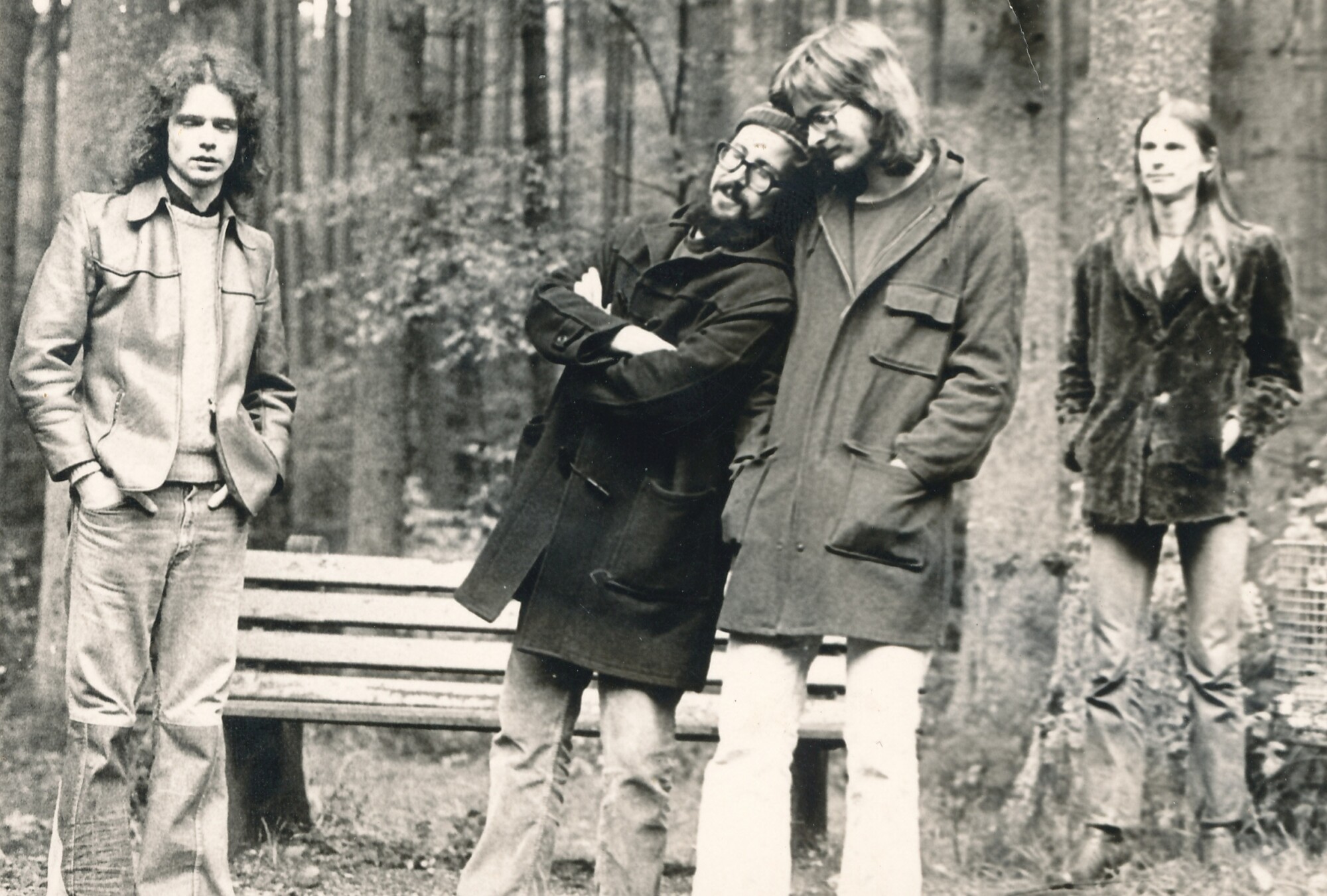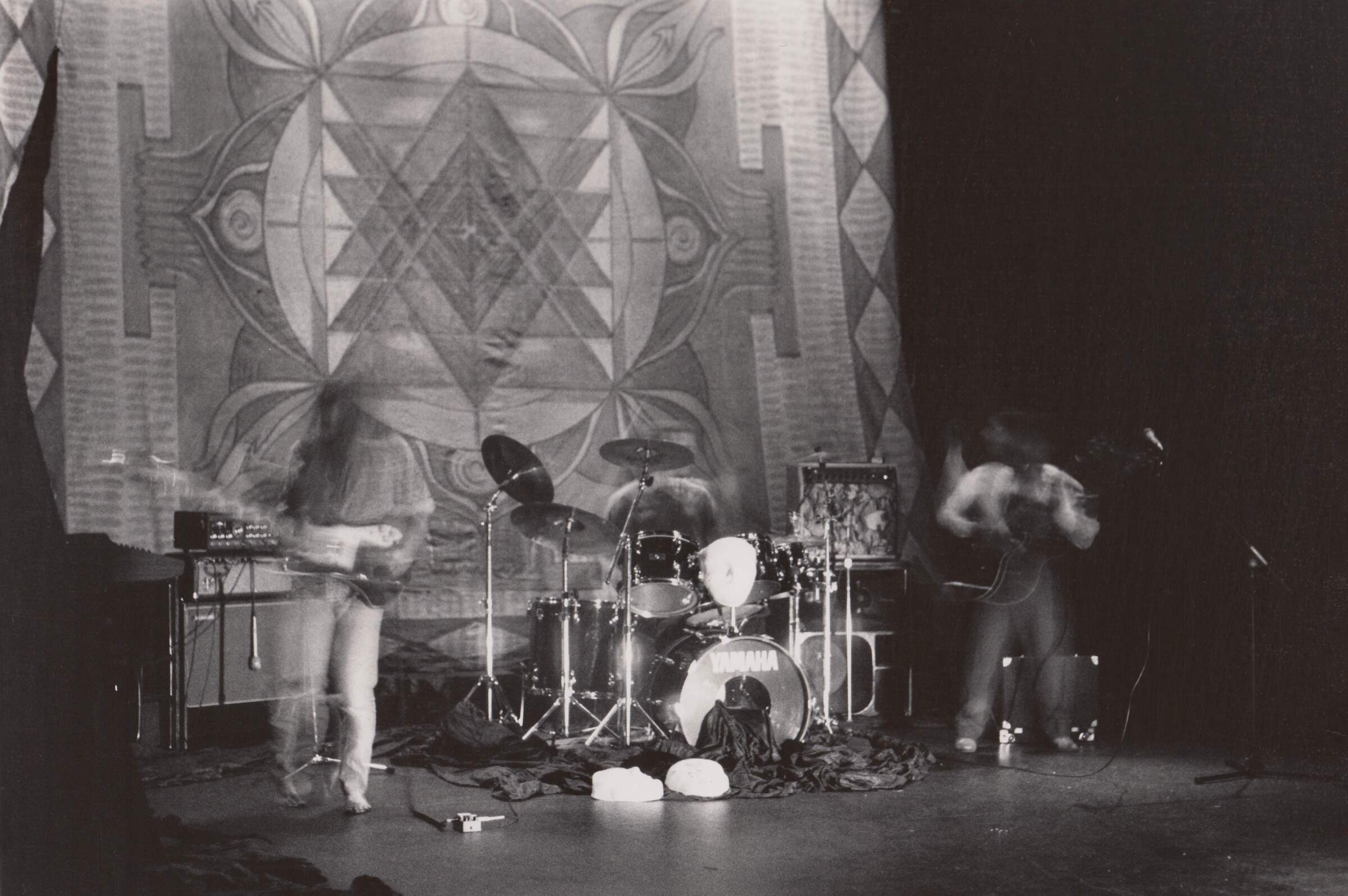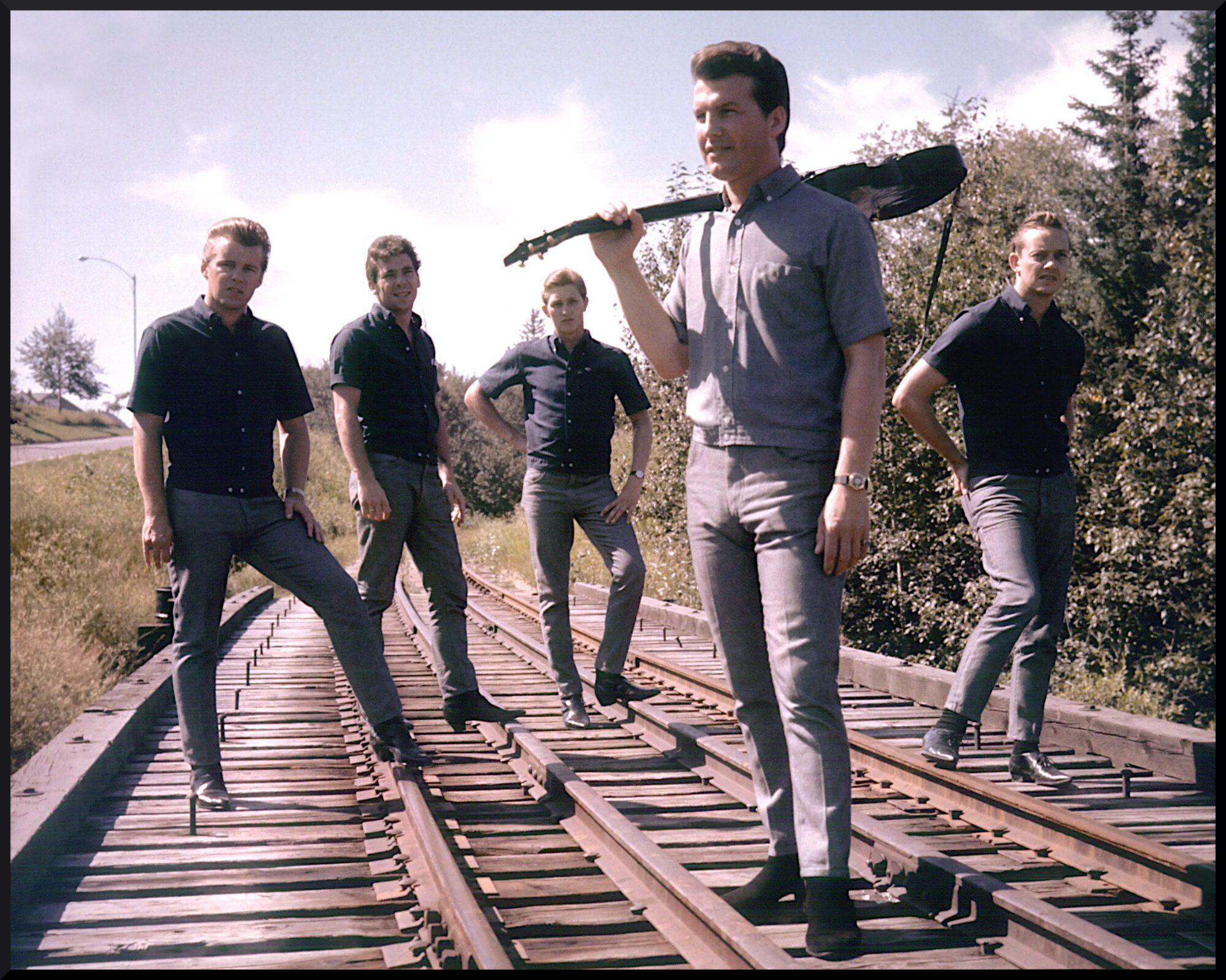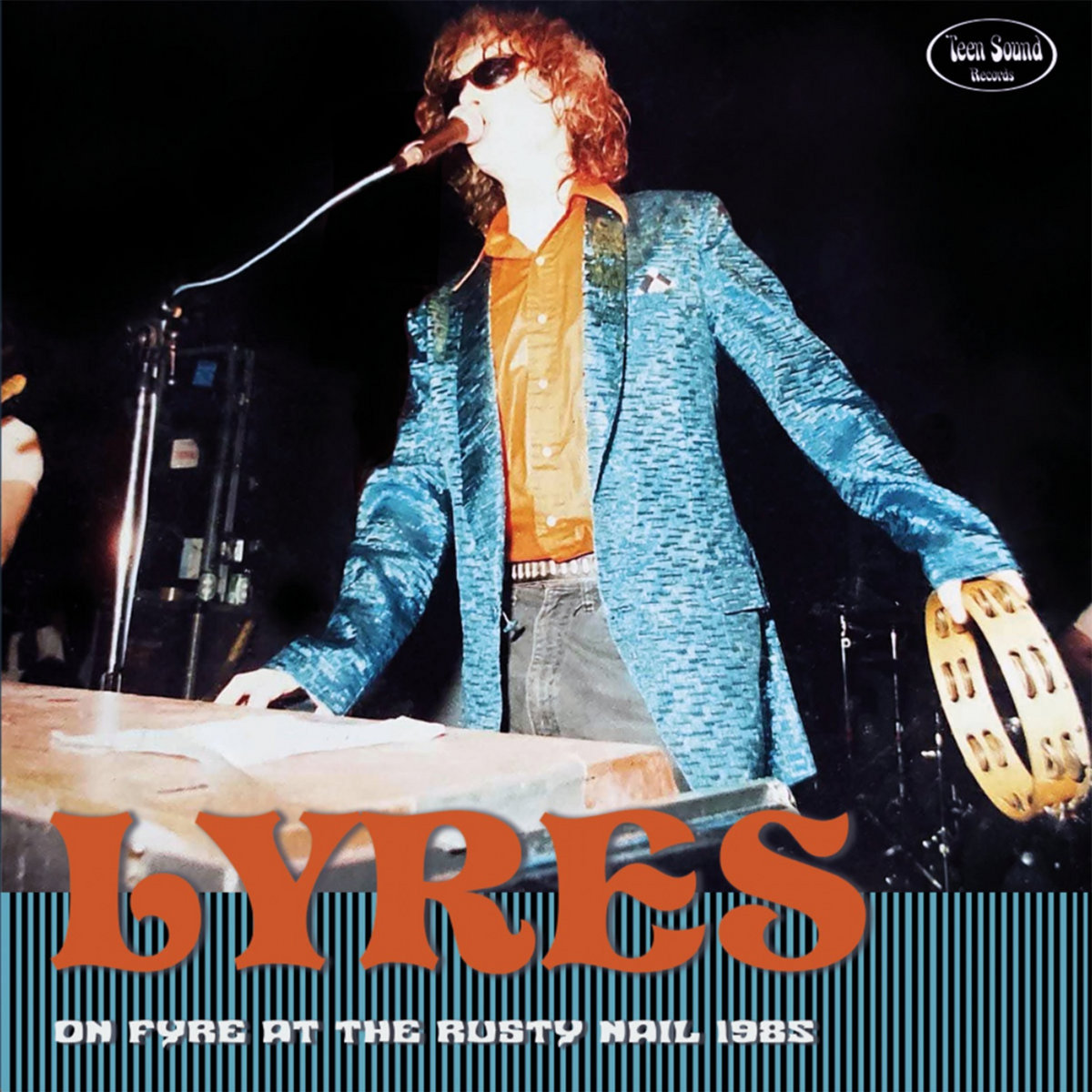Erna Schmidt | Interview | “We wanted to try something different”
The origins of the mythical German band Erna Schmidt can be found in a Stuttgart area based group R&B Corporation. Garden of Delights issued their unreleased material in 2000.
The R&B Corporation existed for several years without ever making an album. Eventually, as the line-up changed, they relocated to Berlin and turned to a new chapter: Erna Schmidt. Their sound changed dramatically to more psychedelic oriented compositions.
R&B Corporation was formed in Schwäbisch Gmünd near Stuttgart in 1963 or 1964. They were playing so-called beat music. In early 1965, Hubert Stytz joined the band, using his Fender guitar to open up the road towards blues rock. Although the majority of the audience were interested in dancing to Bee Gees and Beatles music, R&B Corporation adopted distorted guitar sounds to open new frontiers of improvisation. Soon they became known in southern Germany.
In 1967, Walter Laible joined the band. Occasionally, a brass section with Dieter Seelow and Günther Reger took part in sessions. Furthermore, R&B Corporation played support to famous bands such as Alexis Korner and Procol Harum.
While changing their name, the musical progress was made as well, with the band concentrating on writing its own music and lyrics. Hartmut Mau, part of a circle of musicians around Hellmut Hattler, who were about to found Kraan, also joined the band.
As if by miracle, the band got into contact with the Count of Metternich, who offered them his country mansion Wintrup as a domicile. The road towards a professional career seemed to be open, and the first TV appearance came in the spring of 1971 in Talentschuppen, a very important gig on ARD, Germany’s first TV channel. Professional studio recordings for Pop Shop followed, a programme produced by the regional network Südwestfunk Baden-Baden. Gigs all over Germany, including Berlin’s legendary Quartier Latin, were the result of the band’s success.
Rolf-Ulrich Kaiser of the OHR label offered the band their first recording contract – it was never performed. Hartmut Mau didn’t want to become a professional musician and left the band, dozens of flute players auditioned, but nobody met their expectations and things fell apart. Gradually, doubts about their musical concept began to increase. Erna Schmidt disbanded in the spring of 1972. Walter of the fantastic Garden of Delights label put the band on map in 2000 with the release of unreleased material under the name of ‘Live 69 -71’.
Band members (recording and/or touring): Hubert Stytz (guitar), Wolfgang Mathias (drums), Walter Laible (bass), Jürgen Benz (flute), Hartmut Mau (flute), Hellmut Hattler (bass).
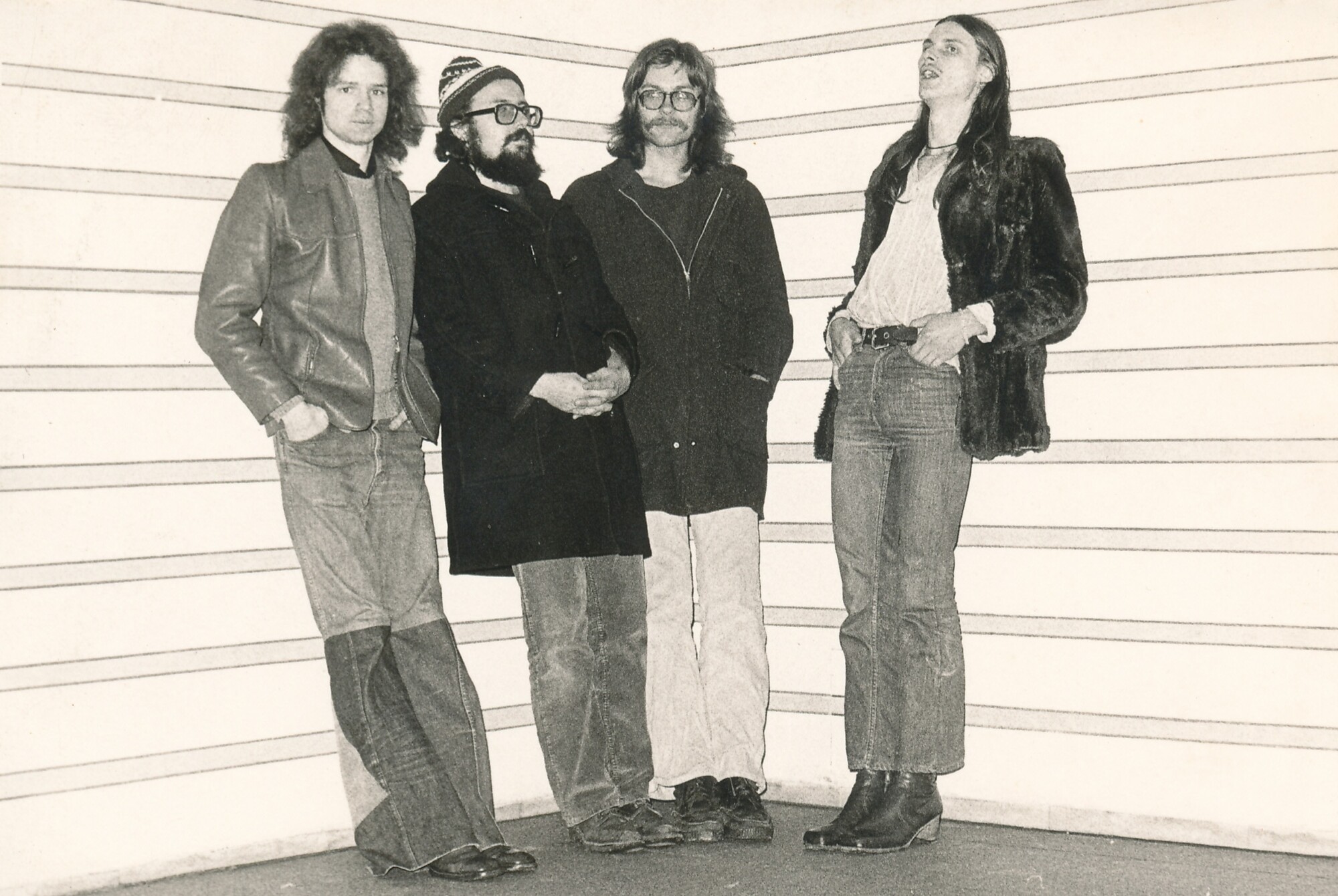
“We wanted to try something different”
It’s really wonderful to have you here. How do you feel about the fact that we are talking about Erna Schmidt many decades later? You had something really special going on.
Walter Laible: There are two hearts beating in my chest. On the one hand, because people are interested in my past – but I can’t judge for whom it ultimately makes sense. But I’m here, I’m participating.
Wolfgang Mathias: I find it strange to talk about it, but I agree with Walter – although when people from back then talk to me enthusiastically about it after such a long time, I think that what we did can’t have been complete nonsense.
Hubert Stytz: What we did wasn’t in vain. I brought my ideas in and just made music. People liked it.
You grew up in Stuttgart? Would you like to discuss some of the very early days growing up in your city and what it was like for a young kid in post WWII Germany?
Walter Laible: The first music I heard was on Monday evenings after eight o’clock: “Schlagerskala,” from 8 p.m. to 8:15 p.m. International music like The Beatles, The Pretty Things, The Rolling Stones. We always had training at the sports club, then quickly took a shower. One had a medium wave radio and that was the only way to hear this music. This also gave rise to the desire to copy this music, like the German bands, Rattles and Lords did. They “persuaded” us, so to speak.
Wolfgang Mathias: We grew up in Schwäbisch Gmünd, a small town near Stuttgart. There was a large US Army garrison with two large barracks. By the way: the first Pershings in Germany were later stationed in Mutlangen, a suburb of Schwäbisch Gmünd; the peace movement of the 1980s against the NATO double decision to station nuclear missiles began here. In our early youth we were fascinated by the Americans. As children, we stood on the side of the road, waved at the GI‘s and were given chewing gum and chocolate as gifts. Most of the R&B Corporation lived near the Housing Area (professional soldiers and their families lived here) and it was there that we came into contact with American music. The big impulse to make music came later. We always had contact with GI’s and smoked weed with them and visited them in the barracks.
Hubert Stytz: I got into playing guitar through my older brothers. Their band covered English music of the time, such as The Shadows and The Beatles. Also The Spotnicks from Sweden. This was the music I played at the beginning.
Was there a certain moment in your life when you knew that you wanted to become a musician?
Walter Laible: I first tried out with cover bands like Cattles and played in American clubs. Once I went along with Hubert and Wolfgang. It was nice because they were different from other musicians I knew. More enthusiastic. The others were more recreational musicians. We wanted to try something different. I was very interested in Hendrix and also listened to older guitar music by Chet Atkins… There was an event that took place at the same time in Heidenheim and Schorndorf. We were there with the R&B Corporation. The first band that played in Heidenheim then continued afterwards in Schorndorf. Colin Hodgkinson realized that he had forgotten his bass and so he took my bass in Schorndorf and re-strung it because he is left-handed. During the first piece we played, I noticed that it was tensioned incorrectly… For me it was a random decision because the two of them and other colleagues did it. But I wasn’t overly motivated. There was a sticking point, though – moving away from the area around here to Westphalia.
Wolfgang Mathias: That took a while for me. For my parents’ sake, I graduated from high school and did an apprenticeship as a bookseller when I was 17/18. During that time I realized that my dream career was to be a musician. That was the time when things started happening with Erna Schmidt.
Hubert Stytz: For me, making music, writing songs and playing guitar is an outlet and my purpose in life. When I saw The Beatles get on the plane to America, I said to myself: I want that too. Up the gangway…
How did you first get involved with music? What were some of the main influences for you and your brother? Did you listen to Radio Luxembourg? Where did you usually find new music in those early days?
Hubert Stytz: I got into listening and making music mainly through my brothers. We listened to songs from records and replayed them.
Walter Laible: The “Internationale Hitparade“ [international hit parade] came on Monday evening, which was my first phase of contact. And of course the “Mittwochsparty“ [Wednesday party]. A wide range of music was presented there. People dug up all this stuff from somewhere. There were people back then who were into The Beatles or The Stones, and others who were into Hendrix or Pretty Things, for example.
Wolfgang Mathias: My first experience with music was with EP‘s, half LPs with two tracks. I listened to classical music for a while, such as the ‘Nussknacker-Suite’ [Nutcracker Suite] or Mozart, ‘Kindersinfonie’ [Children’s Symphony]. Until I heard Mahalia Jackson, the gospel singer, that’s when I felt the soul feeling for the first time. No more Mozart or Tchaikovsky – this was my music! On Süddeutscher Rundfunk [public radio station], there was a “Mittwochsparty” [Wednesday party] in the afternoon, where school classes were invited to bring their own music, like Little Richard or Jerry Lee Lewis. It was played there. That was the first contact. I was home alone and turned up the stereo. That was my impulse. Later with beat music – The Beatles, The Rolling Stones – until Jimi Hendrix came along. Before that, Pretty Things were a big influence. The first song we played ourselves was ‘Hang On Sloopy’ by The McCoys. Old Grundig tube radios were used as guitar amplifiers and PA systems; the drums were a few plastic buckets and a tin lid.
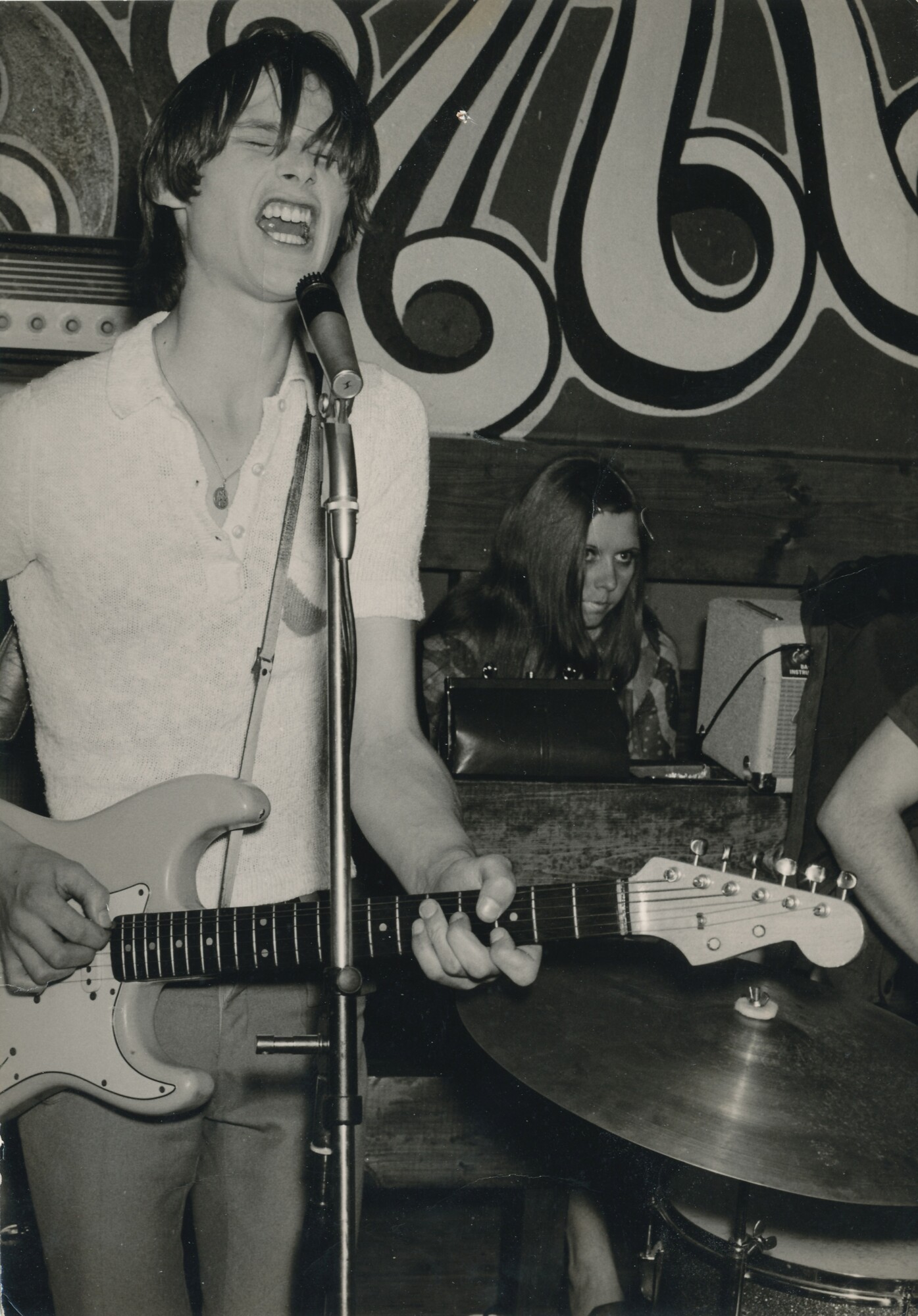
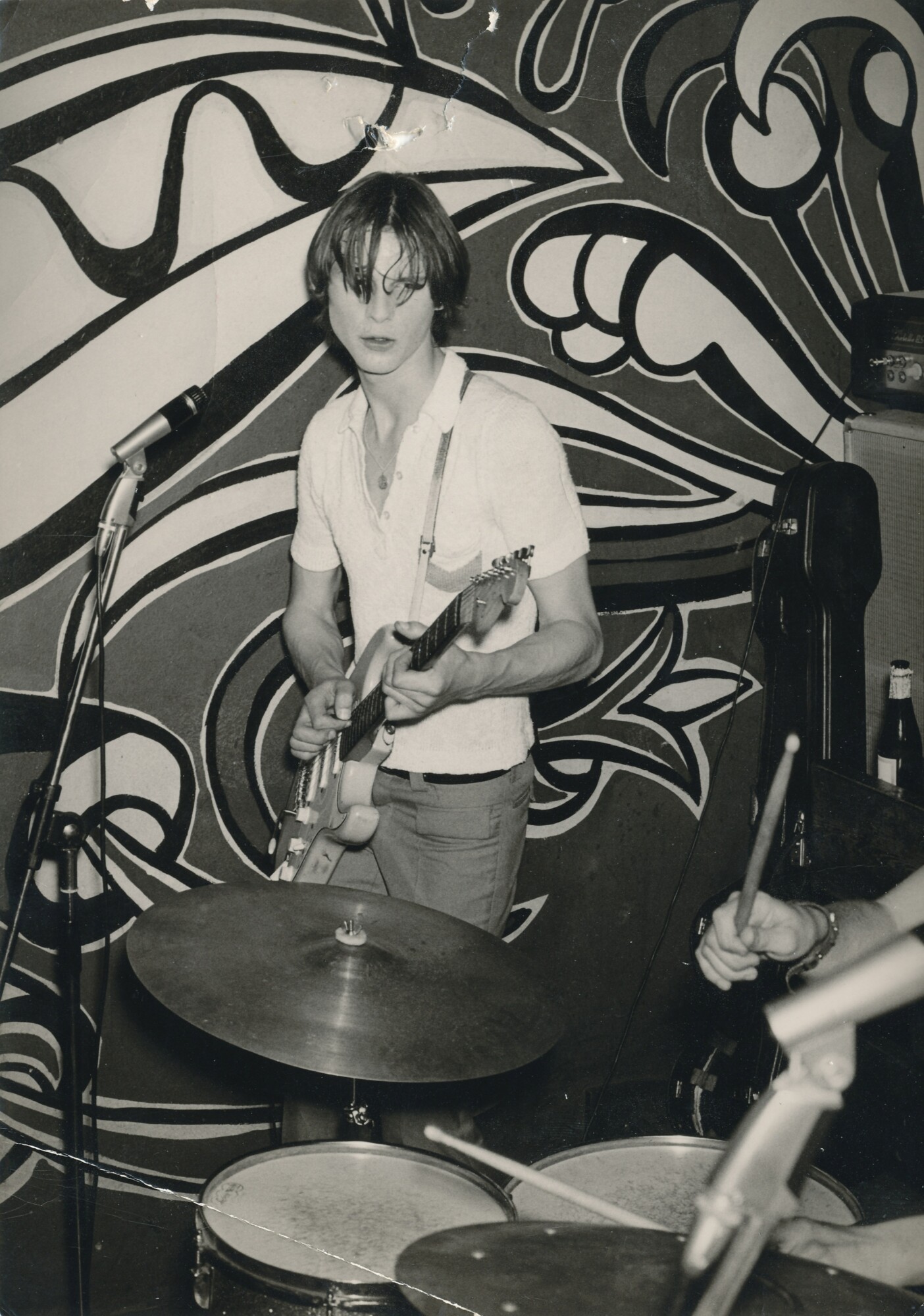
One of the very first bands you were part of was called R&B Corporation. The band kept on going for more than five years?
Hubert Stytz: That was a great time with different musicians.
Walter Laible: …
Wolfgang Mathias: I agree. The line-up was initially five people, a quintet. With the quintet, our preference was The Pretty Things, we covered a lot of songs by them, and also The Spencer Davis Group. Some wanted to play more Hendrix, others more harmonious songs. Then two rhythm guitarists and singers left because there were musical differences. Hubert, I and the then bassist Klaus continued with Hendrix covers, so we became a trio.
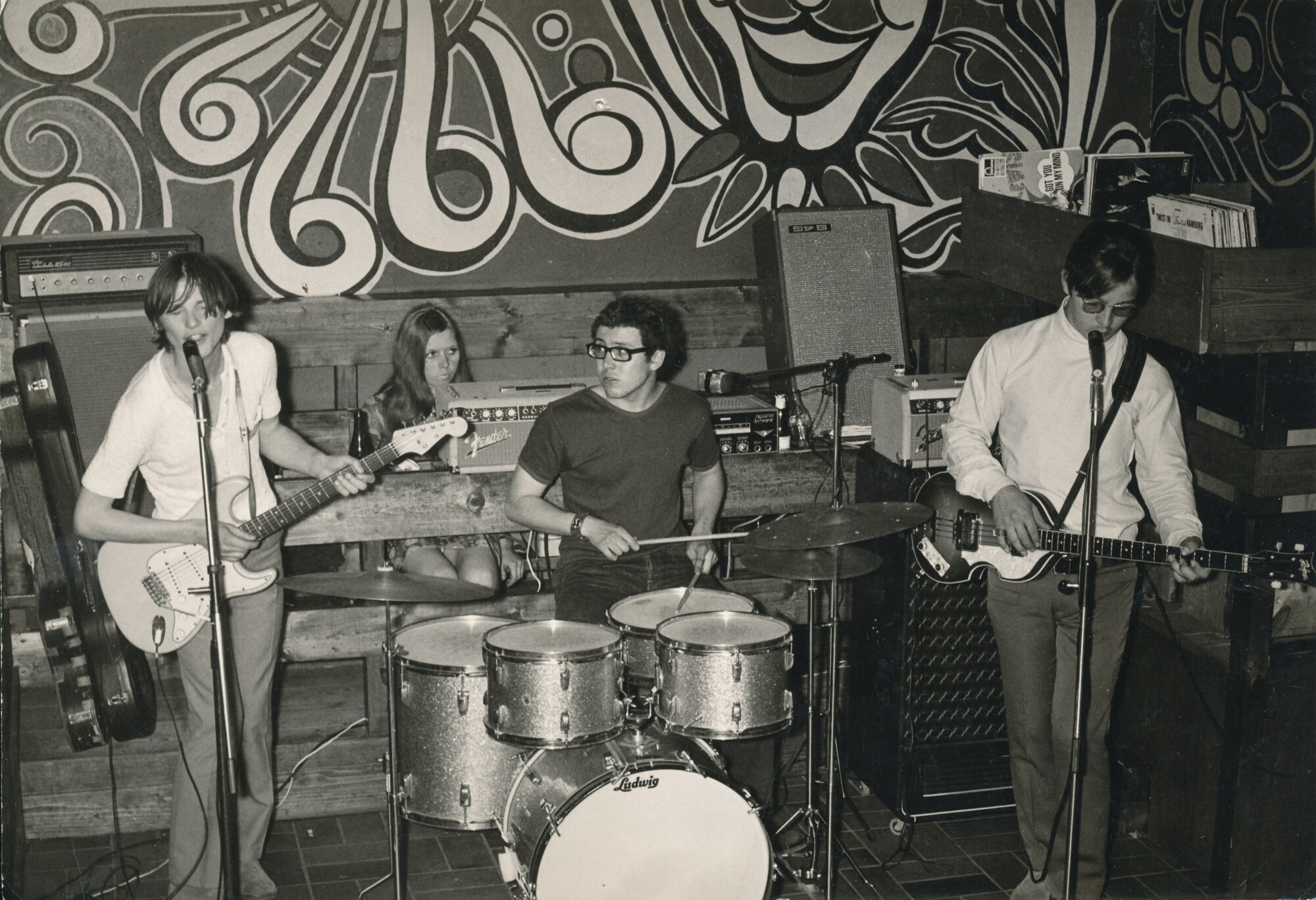
Tell us about the lineup and how that changed?
Walter Laible: I joined around 1969. I was still at school back then and set a record: I missed 66 days in six months. My father gave me blank excuse notes. A little anecdote: Our manager Walter Holzbaur was very hard-working – we said we could imagine making music with a flute. He then looked for a flautist by placing an ad in “Melody Maker”. Someone got in touch and came to audition. He had never played before and it took him forever to find his way into the music. But that was very borderline. Then we came into contact with Hartmut Mau. But at that time we were still R&B Corporation.
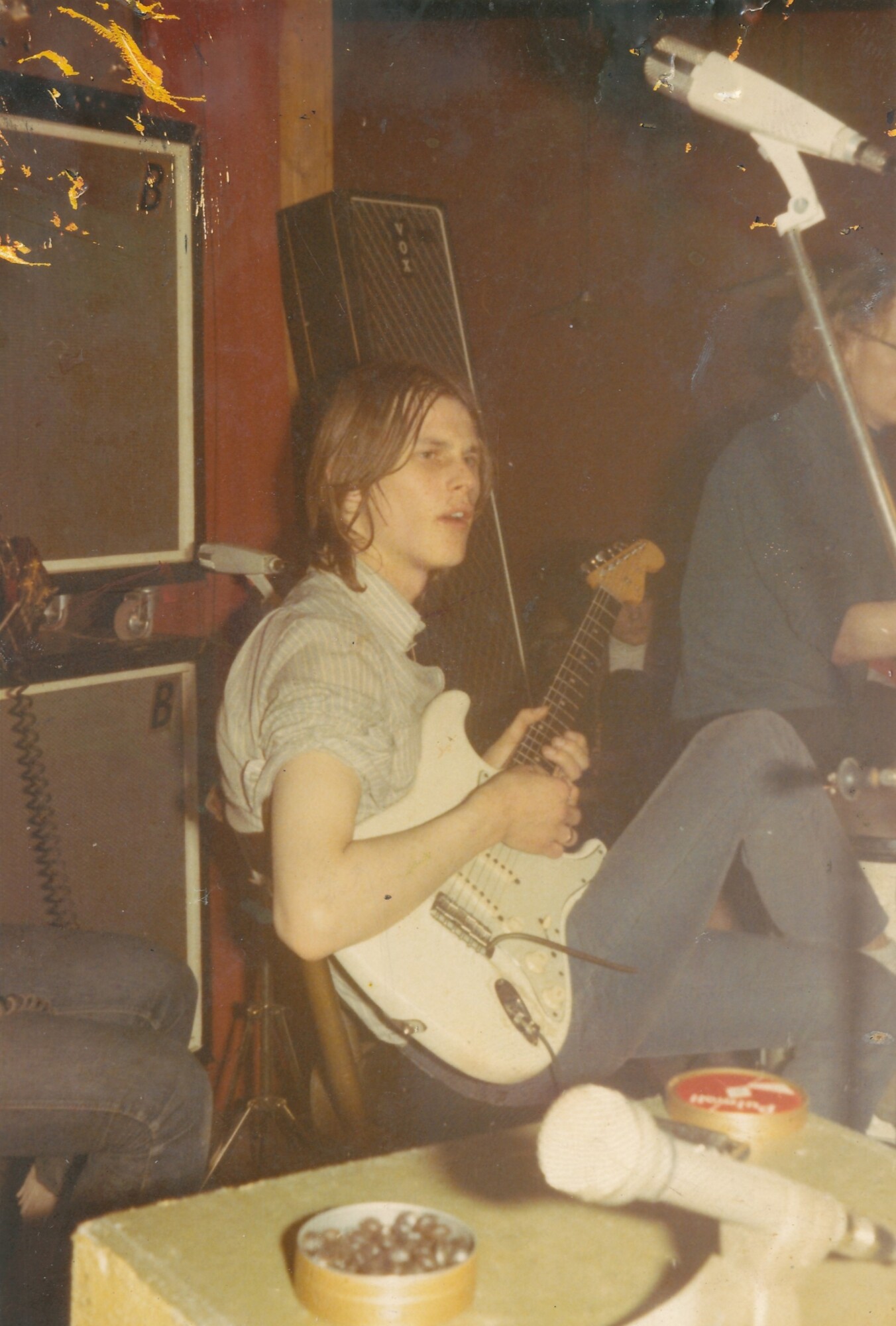
Hubert Stytz: Walter Laible plays a great bass. He came for Klaus Zinner, who wanted to take a different career direction.
Wolfgang Mathias: At first we started as a trio. Because of playing Hendrix covers, there was more and more improvisation, so other musicians joined in. For a while we played with two drummers, organ, flute, bass and guitar. In the end, there were just the three of us again, until Hartmut Mau joined us on flute.
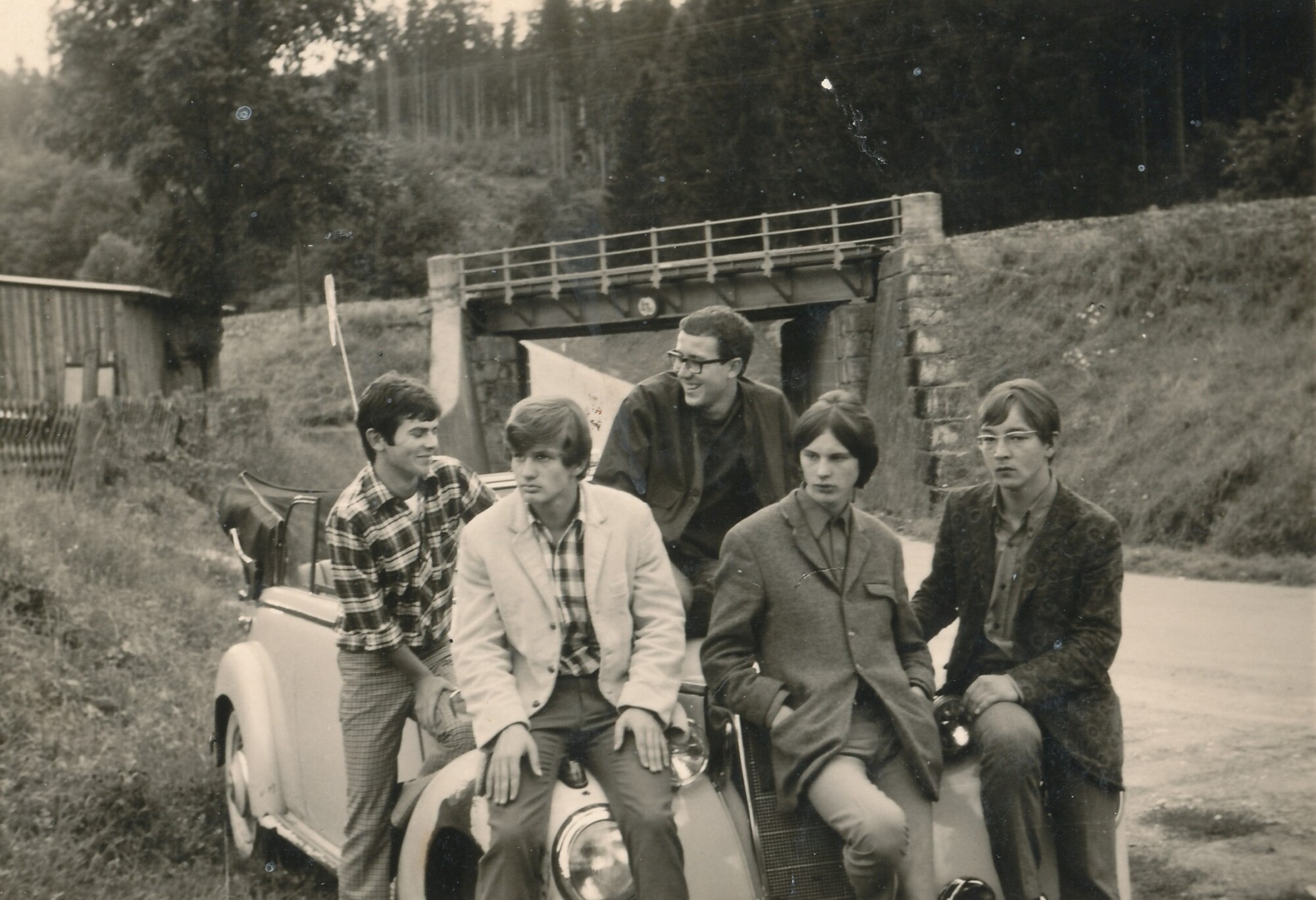
You eventually decided to relocate to Berlin?
Wolfgang Mathias: Not to Berlin, but to Wintrup, a pasture that the Count von Metternich made available to us. That‘s between Detmold and Paderborn. A very large farm in the middle of nowhere. But we relied too much on each other. We missed all our other friends, as we had been fully integrated into the scene in Aalen, Heidenheim, Ulm, Schorndorf and Stuttgart. The next village was 5 kilometers away, the next town even further and there was only one vehicle. We just thought that if we lived together there would be a lot of music.
Walter Laible: That was a problem for me because I left my private environment behind. My girlfriend was there for only 3-4 weeks on summer vacation. For me this was a conflict. Then I lost motivation. There would have been so much time to practice and develop, but there were no gigs. We did set up the system, but we played very little.
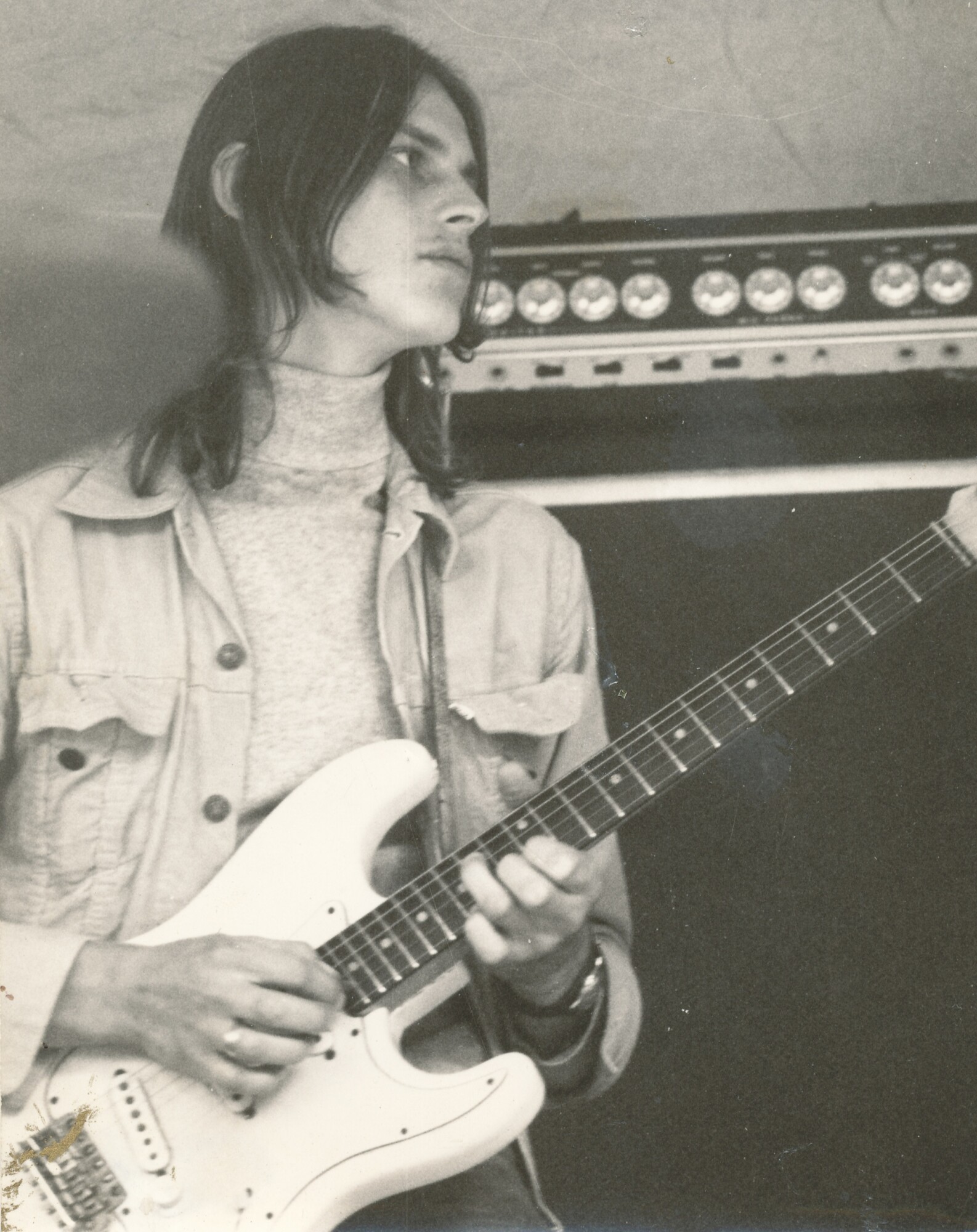
Hubert Stytz: It wasn’t so easy back then. Financially, et cetera. I had my wife and child with me, and I wanted to have a career. That’s why I was making music – as an emotional outlet as well as for career reasons.
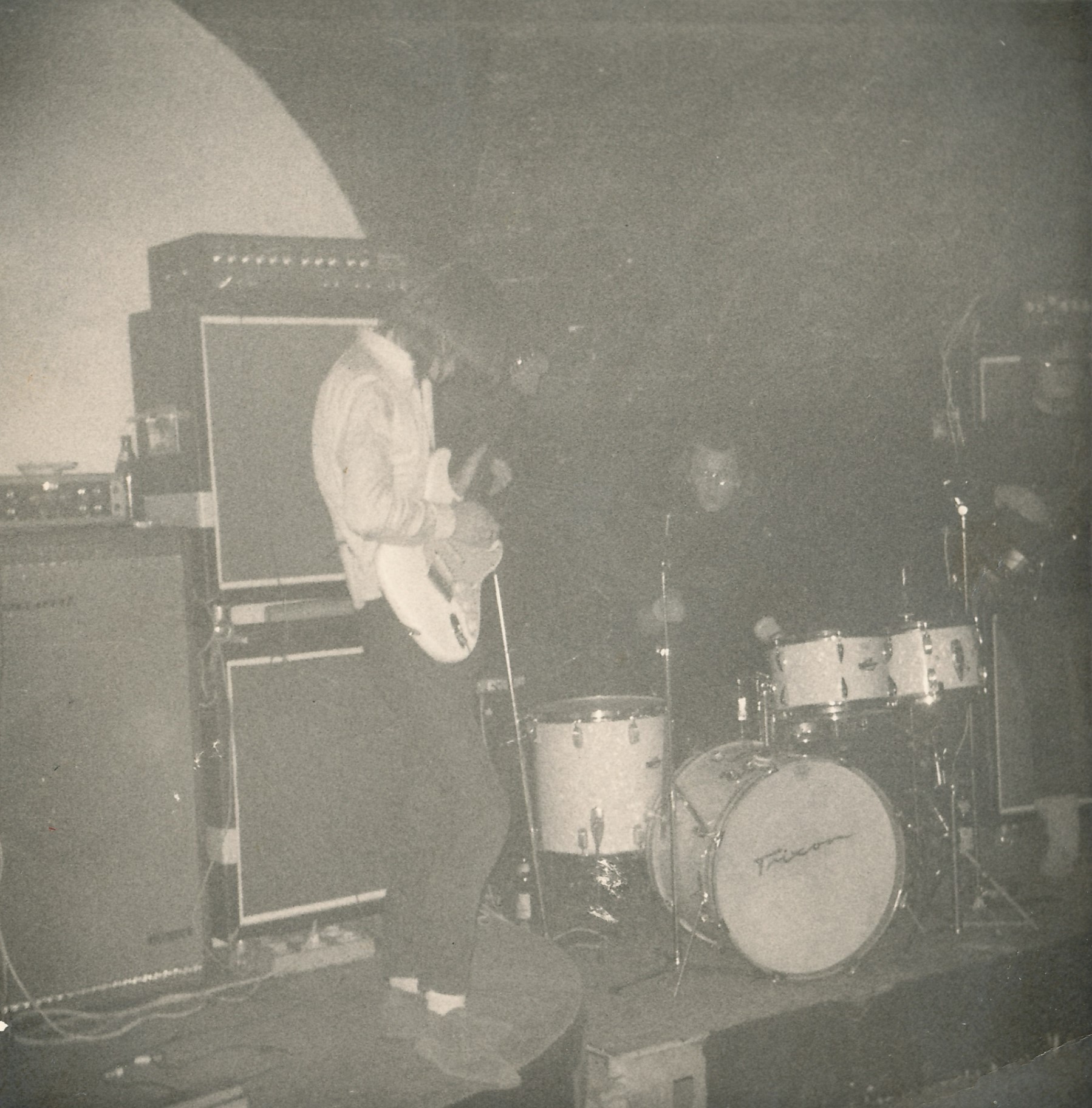
It would be interesting if you would talk about how the style you’d had from the beginning of R&B Corporation changed when you became Erna Schmidt and started to improvise and play long jams.
Wolfgang Mathias: In the beginning we played covers of Pretty Things and improvised with Hendrix. This developed into longer improvisations. A lot of musicians like Dieter Seelow, who was a big player on the saxophone in the region at the time, and others joined in. We were open to jazz and other influences.
Hubert Stytz: I brought in some musical ideas and themes, which we then arranged together. We then jammed live on this basis. Sometimes endlessly.
Walter Laible: I agree with the previous speaker’s answers. We had no concept, we just did it.
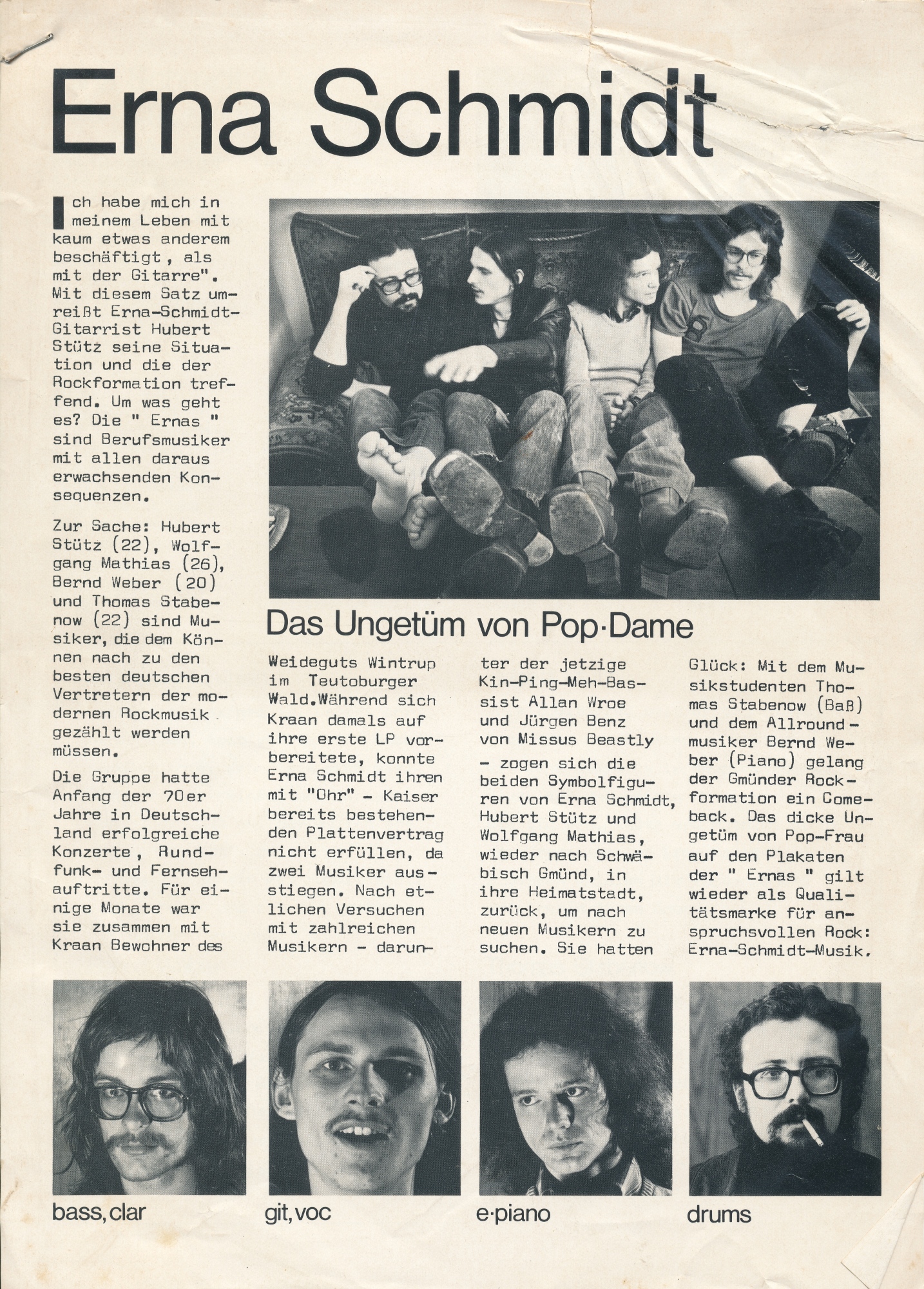
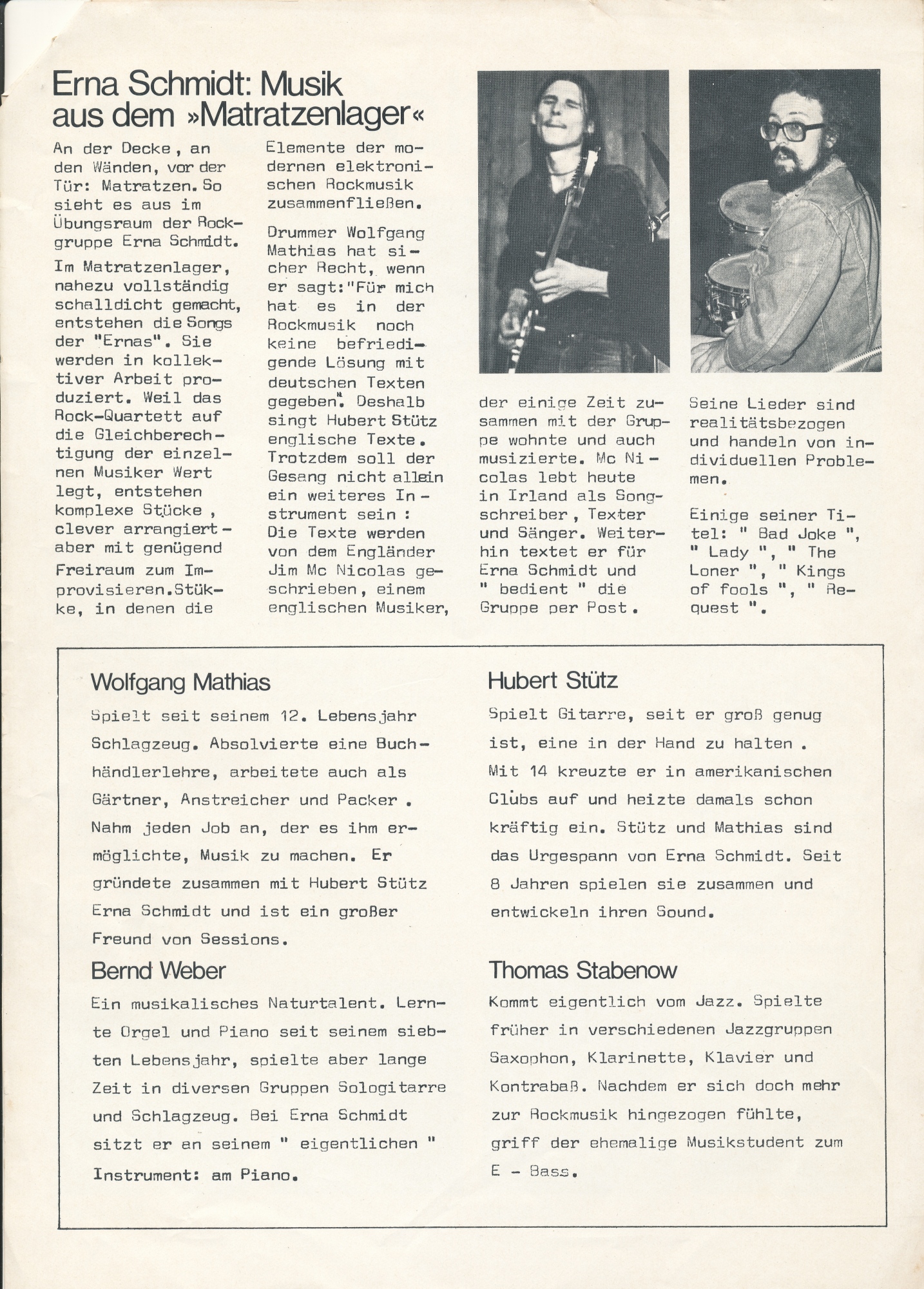
There must be a story behind the band’s name? Why “Erna Schmidt?”
Hubert Stytz: Wolfgang decided that.
Wolfgang Mathias: That was a stoner idea of mine, but we decided together to take this name. We all had a lot of fun with it. We realized that we are a German band and that should be recognizable. We also thought about working with German lyrics, but that didn’t work out. Everyone thinks of Erna Schmidt as a woman and we liked this confusion and that’s how the name came about.
Walter Laible: The basic idea was: why not Erna Schmidt? One is called Karl Nägele, another like that. Another band was called “Emma D.”. There was a similar ulterior motive.
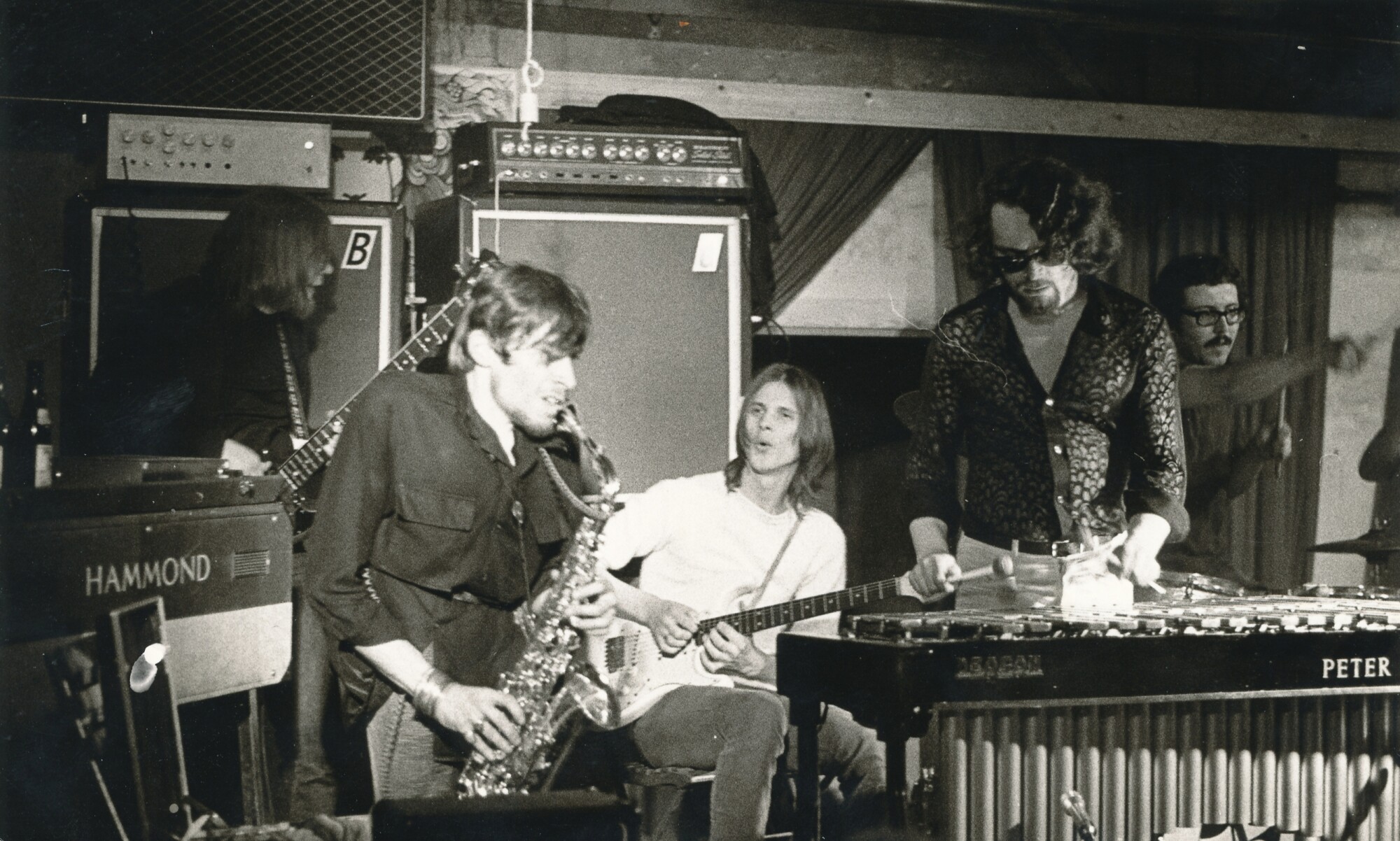
“We jammed a lot at gigs”
Did you live together at the time? Where did you jam together? Did you have a certain place?
Hubert Stytz: We had a practice room in Aalen.
Walter Laible: We played in a disco pub every Monday, where we had the opportunity to jam.
Wolfgang Mathias: When we lived together in Wintrup, we played very little, let alone jammed. We jammed a lot at gigs.
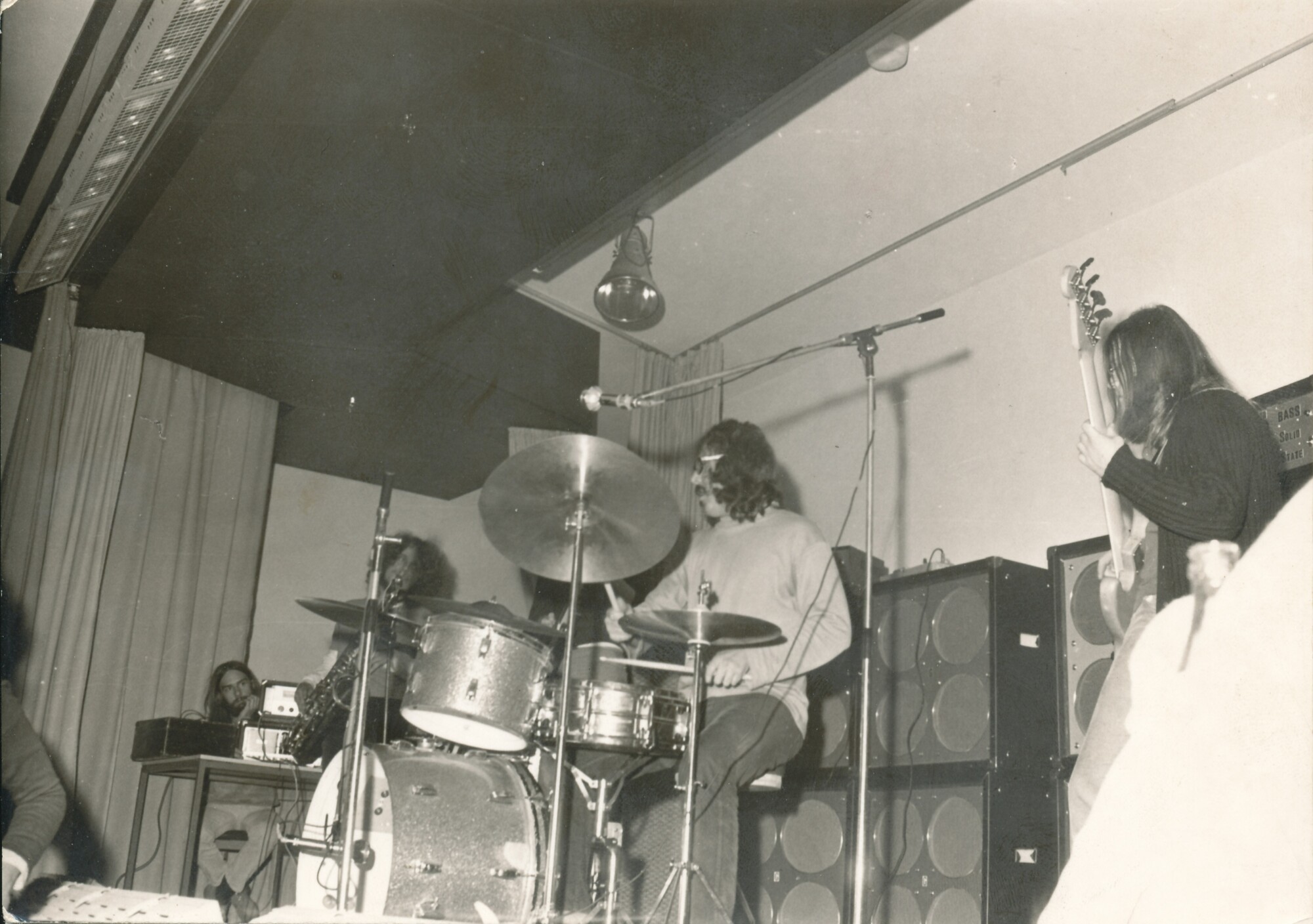
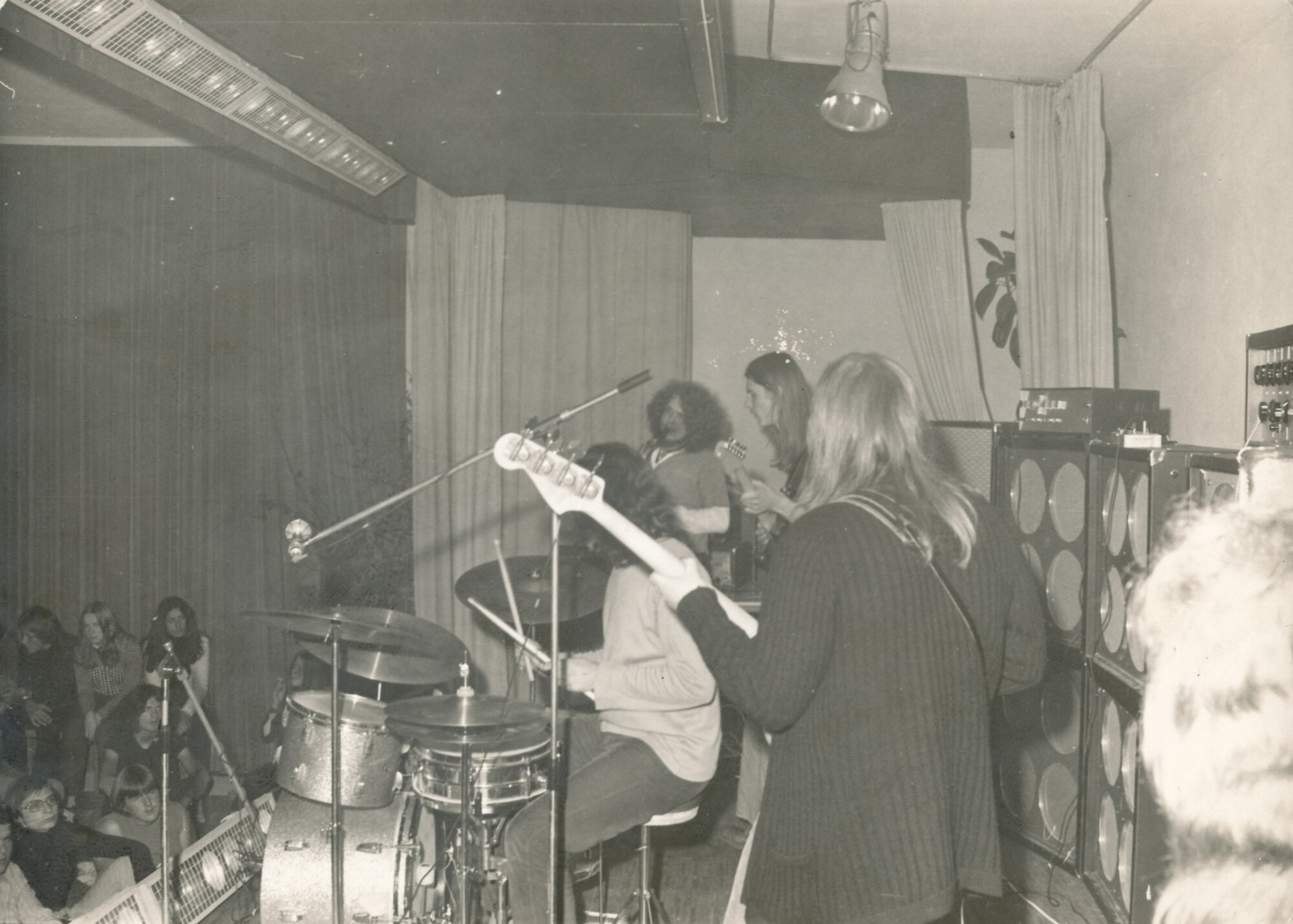
How did the Ohr contract come along? What went wrong with it? Why do you think the album wasn’t released at the time?
Wolfgang Mathias: We were too stupid to publish it. The flautist didn’t move to Wintrup with us at the time and wasn’t even there anymore. Walter Holzbaur, our manager, should have said: grab Hartmut Mau and go to the studio and record! Afterwards Hartmut Mau can go back if he wants to and the recordings would have been done. And we didn’t check that either. Then we looked for another flautist but couldn’t find one. Jürgen Benz from “Missus Beastly” on the flute and saxophone helped out, but didn’t want to join. We were already out of steam and recording was no longer an issue.
Walter Laible: We spared Hartmut Mau too much. We played a Berlin tour, four or five gigs, and we had to persuade Hartmut to come along. And that’s what we should have done with the recordings.
Hubert Stytz: We played in Offenbach with twenty other bands. Then an agent from a record company, an Englishman, came to us and said it sounded good with the flute. The pure guitar sound wasn’t that interesting for him, only the flute was interesting at that time. I’m a guitarist, and it wasn’t really about me. It was only because of the flute that we got record company interest.
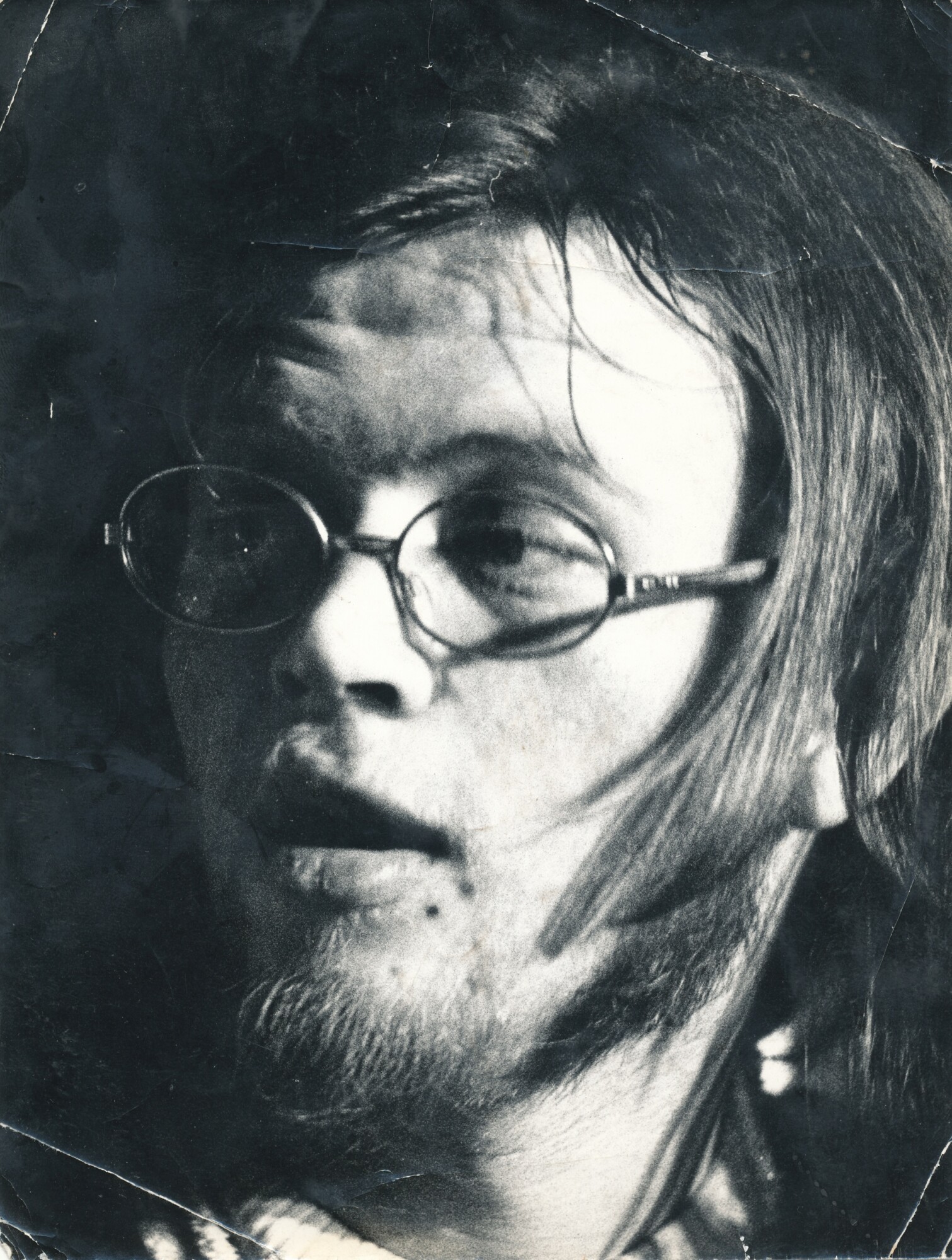
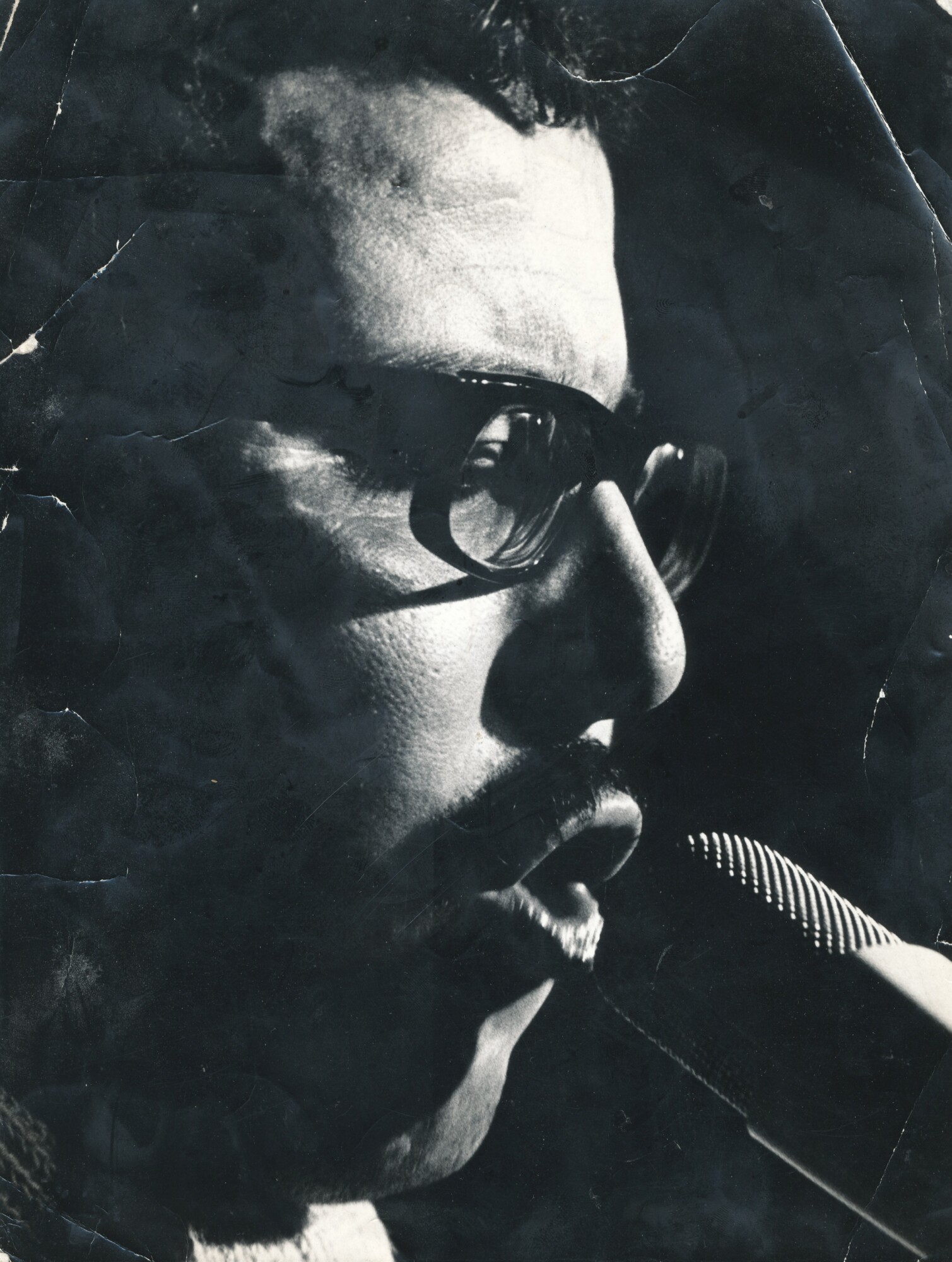
Garden Of Delights issued a wonderful compilation of your live tracks. Would love it if you could go track after track and comment about those songs.
‘Erna Schmidt’
Hubert Stytz: Hartmut Mau plays beautifully. Too much wah-wah pedal for me.
‘Weiß Gott’
Hubert Stytz: That’s a combination of words that underlines the certainty or sureness of a statement (“God knows…”). There are a few structures there…
Wolfgang Mathias: That was pure improvisation, structures developed by chance, which was something that occasionally happened during the jams
Walter Laible: When I listen to it now, it occurs to me that we were really listening to each other back then.
‘Pass – WeitesLuftmeer’
Wolfgang Mathias: This came from an acid vision.
‘Woischwiemoin’
Hubert Stytz: It‘s a Swabian phrase, which means “you know what I mean.”
‘La Folie D’Espagne’
Hubert Stytz: Striking, classical flute theme.
Wolfgang Mathias: I always thought it was a Jethro Tull imitation.
Walter Laible: The connection to Jethro Tull is definitely there. I had some problems with the flute on that song. Technically no stage monitor and no speakers. The flute is a very frail instrument.
‘Kleines Idyll’
Hubert Stytz: …
Walter Laible: …
Wolfgang Mathias: …
‘Rulaman’
Hubert Stytz: I always wanted to be like Rulaman, from the novel by David Friedrich Weinland. Son of a chief, courageous, honest and a role model for everyone.
Wolfgang Mathias: I like it very much. I didn’t like the groove I played back then, but I do now.
‘Ein Tag Aus Dem Leben Des Menschen P.’
Hubert Stytz: Expressive drum solo by Wolfgang.
Wolfgang Mathias: The only interesting thing about the piece for me is the drum solo in 5/4 time. I still ask myself how I managed to do that. I also had technical problems with the flute, our equipment wasn’t the best…
‘Reif Für Die Insel’
Wolfgang Mathias: That was us back then towards the end.
‘See Ya’
Wolfgang Mathias: My favorite piece, an improvisation for three that we did pretty well. Wonderful guitar solo.
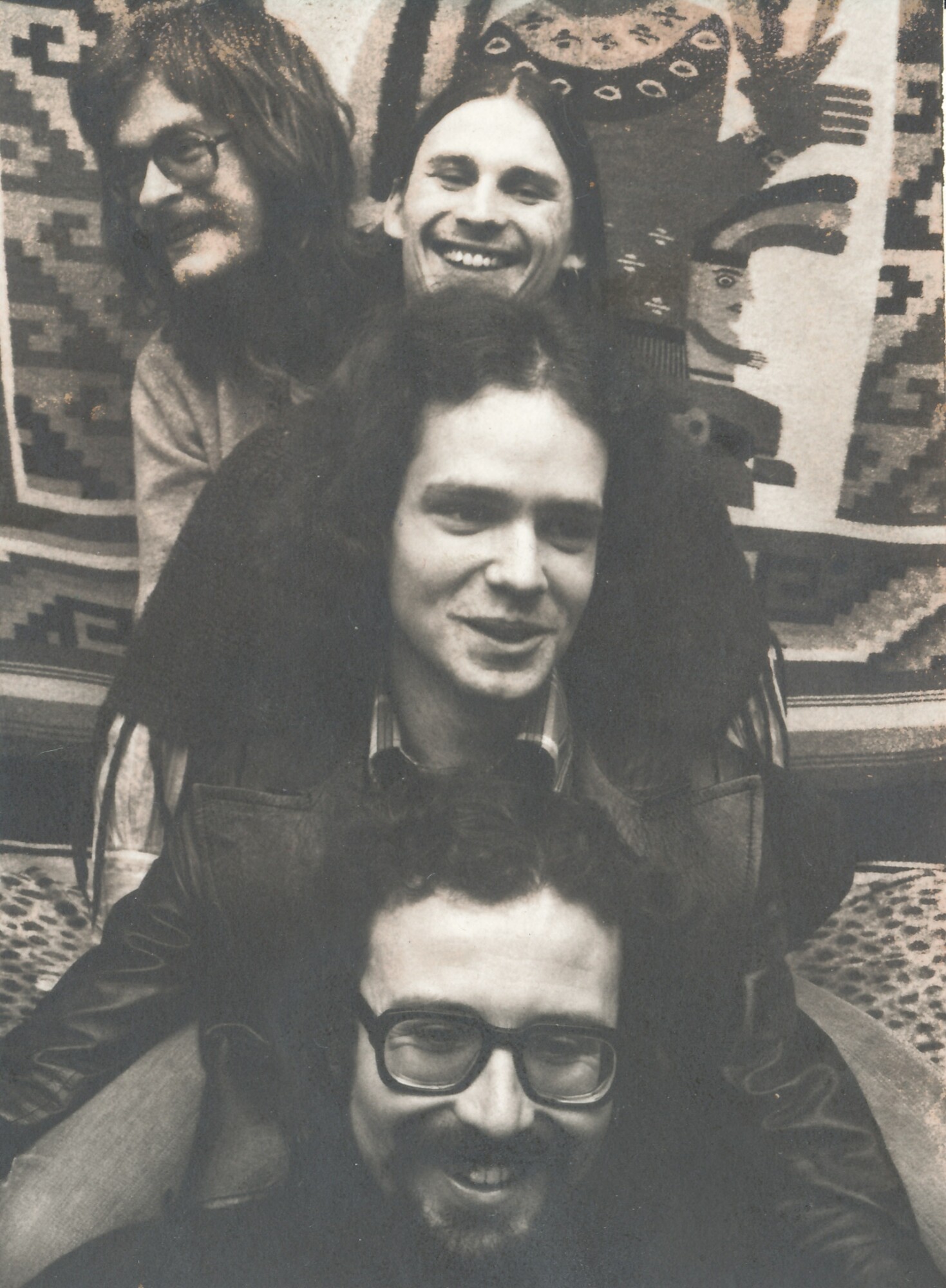
Is there any other unreleased material somewhere?
Hubert Stytz: Sure.
Walter Laible: I don’t know that there is anything else.
Wolfgang Mathias: There are countless bad live recordings. All by our friend at the time, Günter Nubert, who also recorded the CD. I listened to 20-30 hours of music – the best material was made with Hartmut Mau, when structures emerged. The other recordings have interesting things, but you can’t publish them like that. There’s too much idle time.
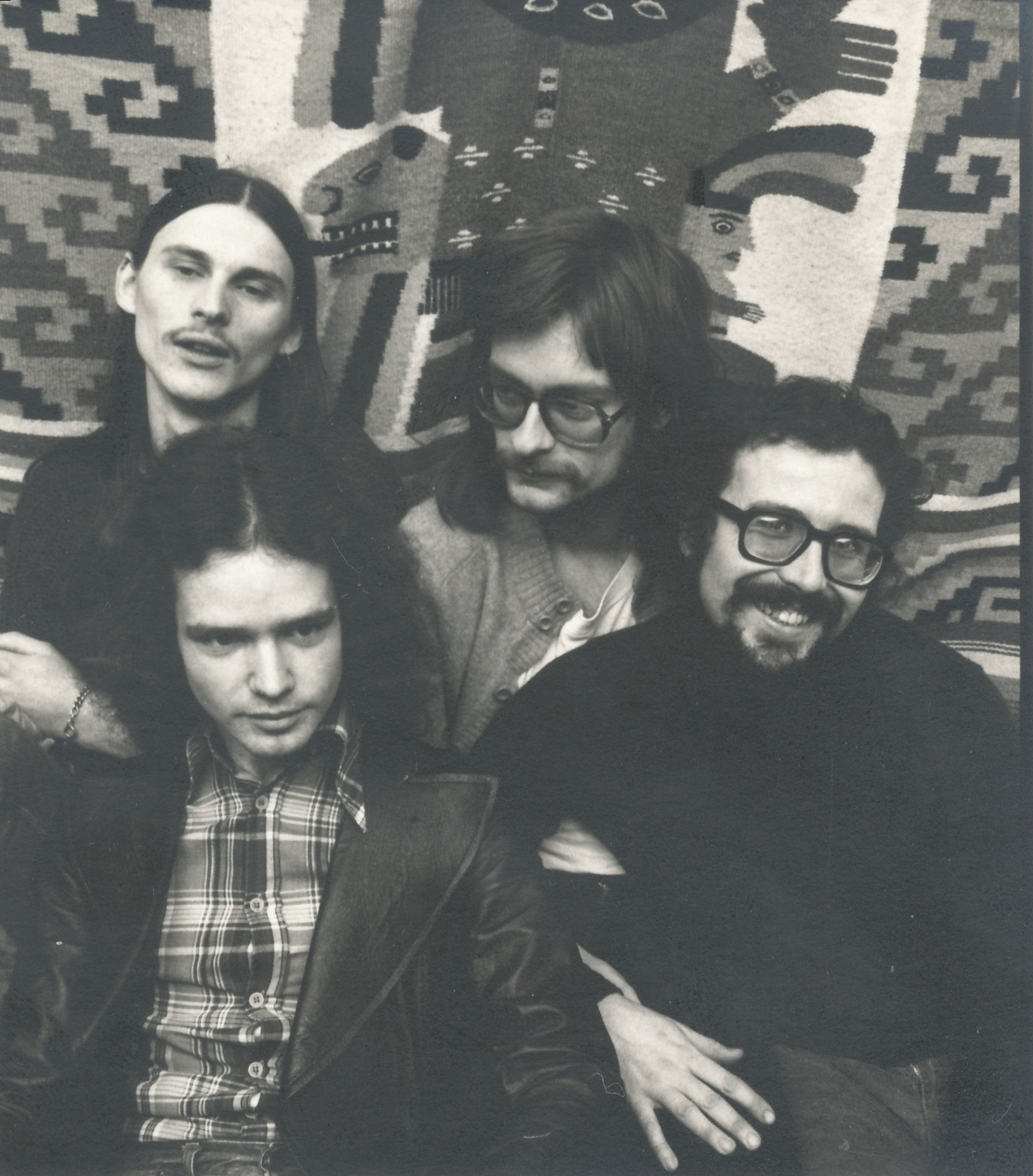
Did you have a plan back then how to name the album? Did you have any other tracks that didn’t appear on the Garden Of Delights release?
Hubert Stytz: Not at all.
Walter Laible: I can’t say any more about that.
Wolfgang Mathias: No, therefore the simplest solution was to name it “Live 69-71.”
Would you be into making a concept album, if that were possible?
Hubert Stytz: I can’t imagine that. I made this music many years ago. The concert in January 2001 on the occasion of the release of the Erna Schmidt CD was very special.
Walter Laible: Not so much.
Wolfgang Mathias: No idea, I have no concept.
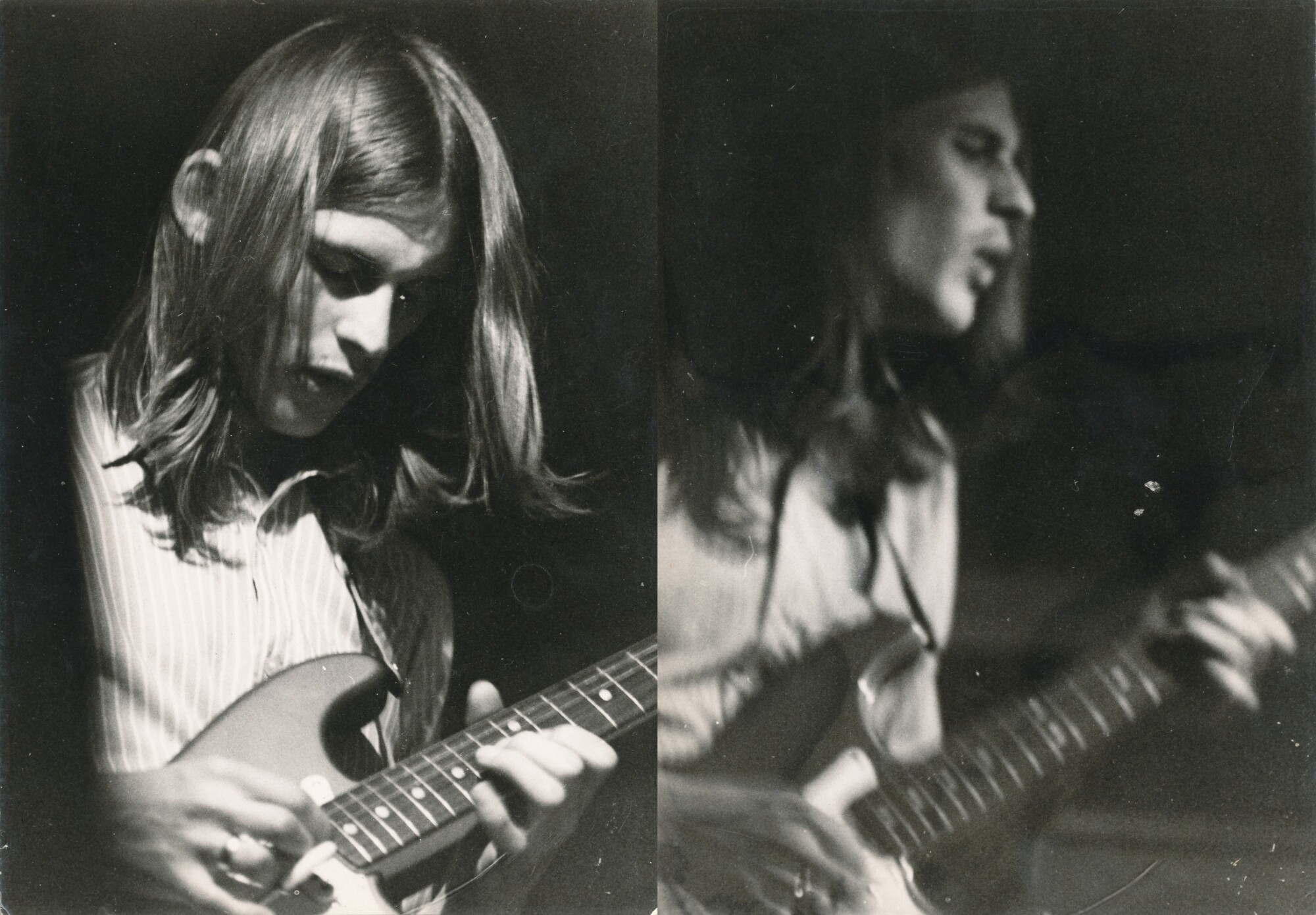
What kind of clubs did you play and what are some bands you shared stages with?
Walter Laible: In a basement in Heidelberg, the “Storyville” jazz club, without ventilation and where everyone smoked weed…
Hubert Stytz: The gig in the basement in Heidelberg was the most stoned one ever. In the “Saustall” in Ulm we played with the band “Veit-Wolbrandt,” the predecessor of Kraan. The festival in the town hall in Offenbach was important… That was the most important one for Erna Schmidt. In Geislingen with “Et Cetera,” the band comprised Wolfgang Dauner, Fred Braceful, Siegfried Schwab, Eberhard Weber…
Wolfgang Mathias: We often played in Ulm, once in the “Donauhalle” with Kraan and other bands. We played at some NCO and EM clubs in the US Army barracks, in Berlin in the “Quartier Latin,” in Hannover in the “Tonne,” with Can. At “Saustall” in Ulm we tore up the club after the gig and didn’t get any money. In Heidenheim in the concert hall and in the “Naturtheater,” in the disco pub in Aalen. We often played Schorndorf in “Hammerschlag” and in the “Manufaktur,” as the opening act for Procol Harum, Steamhammer, Taste, Alexis Korner, Nektar, Man, Brian Auger and The Trinity and also as the main act…
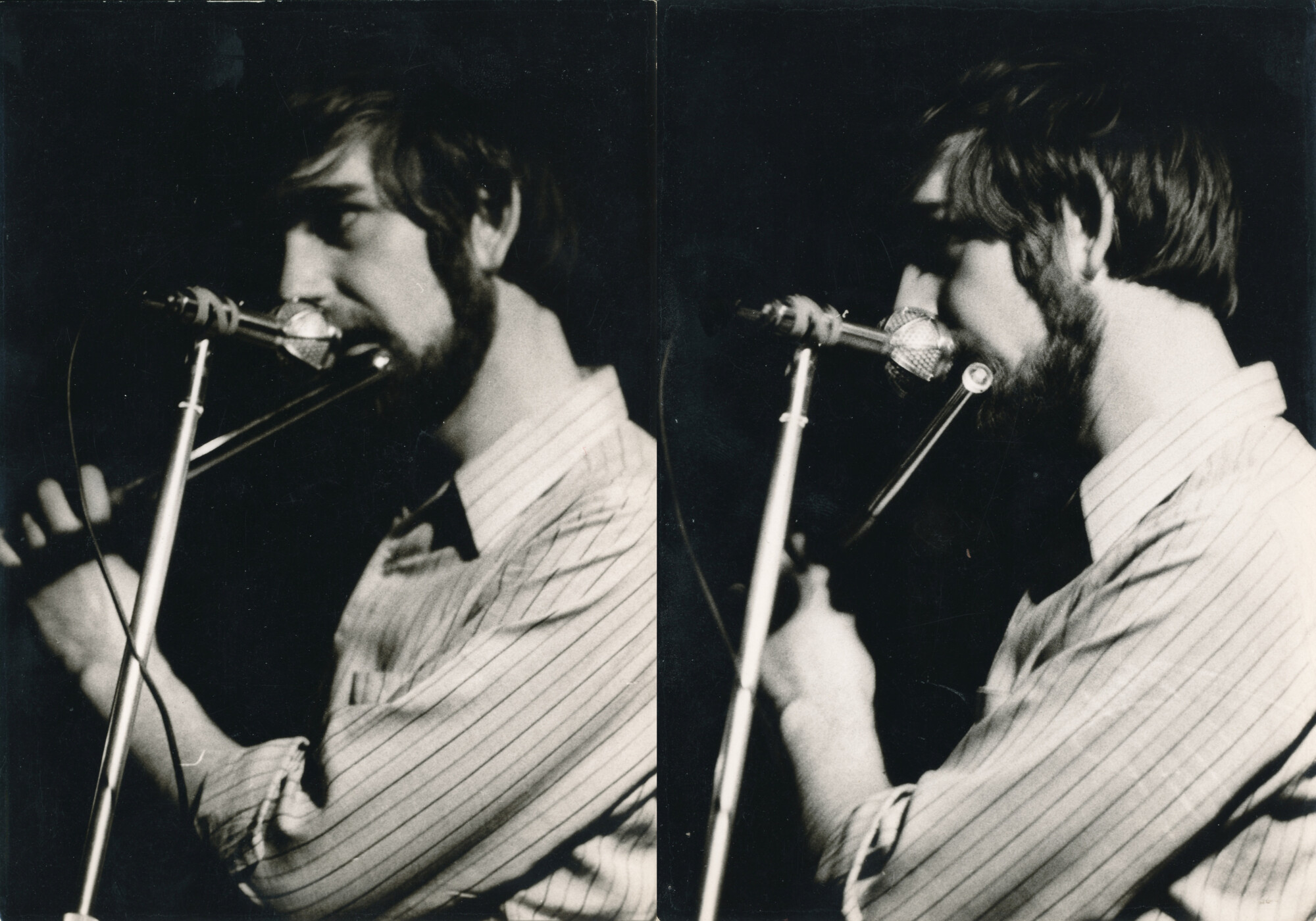
What kind of gear, amps et cetera did you have?
Walter Laible: It was all no-name stuff. Once I played Fender, a Hoyer bass, Nubert amplifier.
Hubert Stytz: Fender Stratocaster guitars, Fender Twin Reverb, Marshall and a Nubert amplifier kit. “Cry Baby Wah Wah Pedal” by Jim Dunlop.
Wolfgang Mathias: I had a Ludwig drum kit.
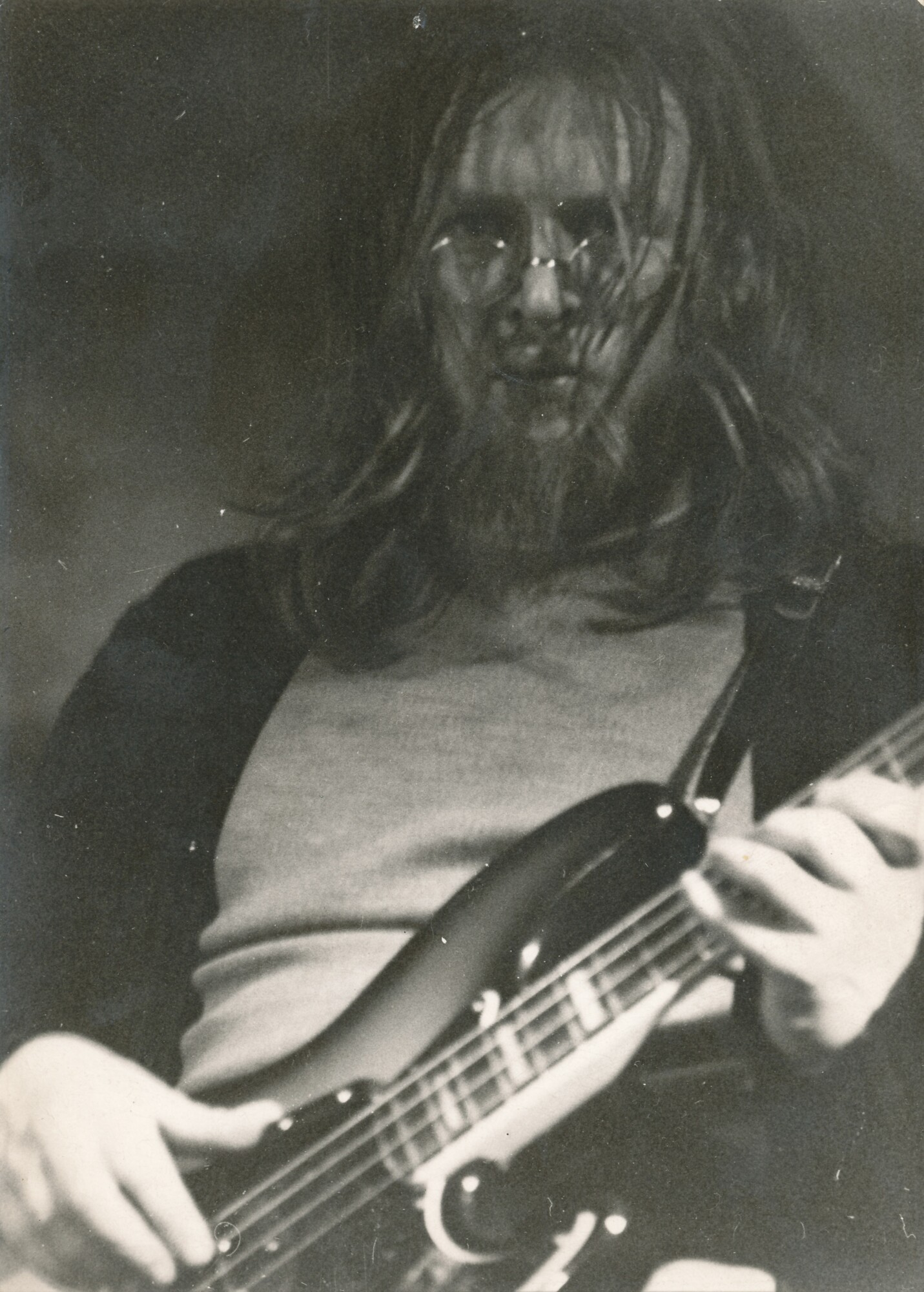
When did you decide to disband?
Hubert Stytz: It wasn‘t determined, it just developed that way.
Walter Laible: Should have been 1972.
Wolfgang Mathias: During the time in Wintrup. Hardly any gigs, no flautist. Walter bailed out, we played around with temporary musicians for a while…
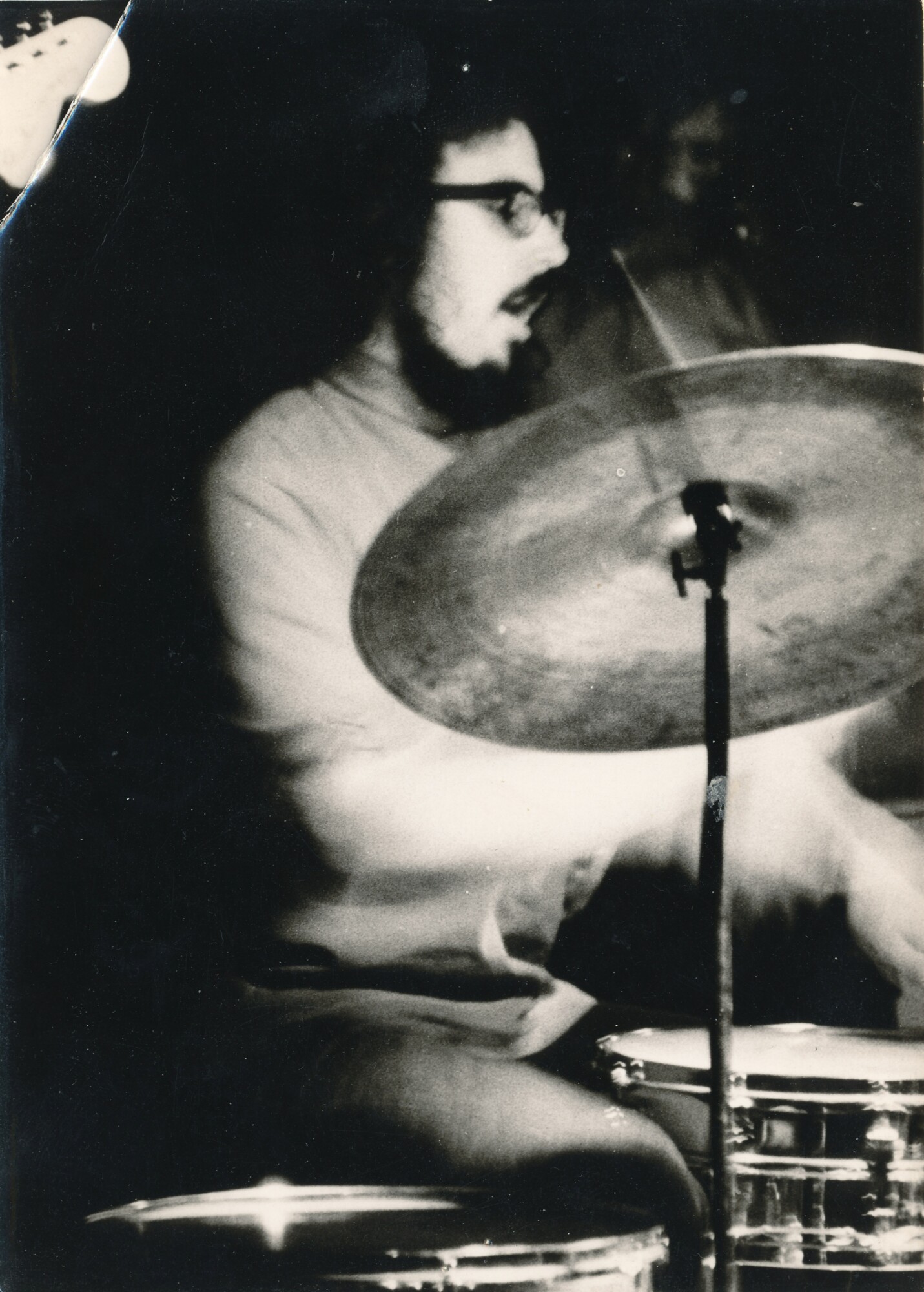
What would be the craziest gig Erna Schmidt ever played?
Hubert Stytz: “Naturtheater” in Heidenheim.
Walter Laible: That was in Pforzheim at the “Lupus” liquor wholesaler. We played at a midnight event. On the way there the engine burst. We called the organizers, they sent a VW bus, and we were there at twelve o’clock at night. There were liquor bottles everywhere and Wolfgang filled the suitcases with spirits while clearing away our equipment. The people at “Lupus” must have noticed. We spent the night there and the next day there were boulders instead of schnapps in our suitcases. In Winnenden we played for the Kreissparkasse [bank institute], a “profit savings” event that was very conservative. The three of us stood there with our Hendrix equipment and the audience was totally bewildered.
Wolfgang Mathias: At the gig at “Storyville” in Heidelberg we were all so stoned that we left all our microphones outside the club when we loaded our system into the band bus. Friendly club-goers then brought them to us at the hotel… We were the opening act for Procol Harum at the “Naturtheater” in Heidenheim, outdoors. But they didn’t play because it was snowing lightly. We were on acid and thrilled by the snow melting on the cymbals. We were totally stoned and we really enjoyed Steamhammer, who played after us.
“Smoking weed and listening to music for hours every day was part of my musical development”
Did you experiment with psychedelics at the time? Would you say they change the perception when it comes to music making/listening?
Hubert Stytz: Yes. The truth is that it does. You play more freely under the influence of psychedelics, but also without control. A large part of my solos had no concept. But it can also be done without drugs. I once played – without drugs – and the audience brought me back to reality with applause from one of my long improvisations.
Walter Laible: I have very little experience with drugs in general. There was always someone who had to drive, and you didn’t take any big risks. However, there have already been a few trips…
Wolfgang Mathias: Yes we have. But when it comes to playing, all drugs suck. You make the best music sober and fully conscious. For me, smoking weed was the ideal drug when listening to music. The altered temporal perception is an interesting listening experience. Smoking weed and listening to music for hours every day was part of my musical development…
Did any of you play or have a project later in the 70s?
Hubert Stytz: Check out the biography.
Walter Laible: I played in blues bands two or three times, ten years apart. Totally amateurish.
Wolfgang Mathias: I played in a few bands, more or less known, semi-professional and amateur. My interest remains to this day for improvised and free music, I still play with different people from the region.
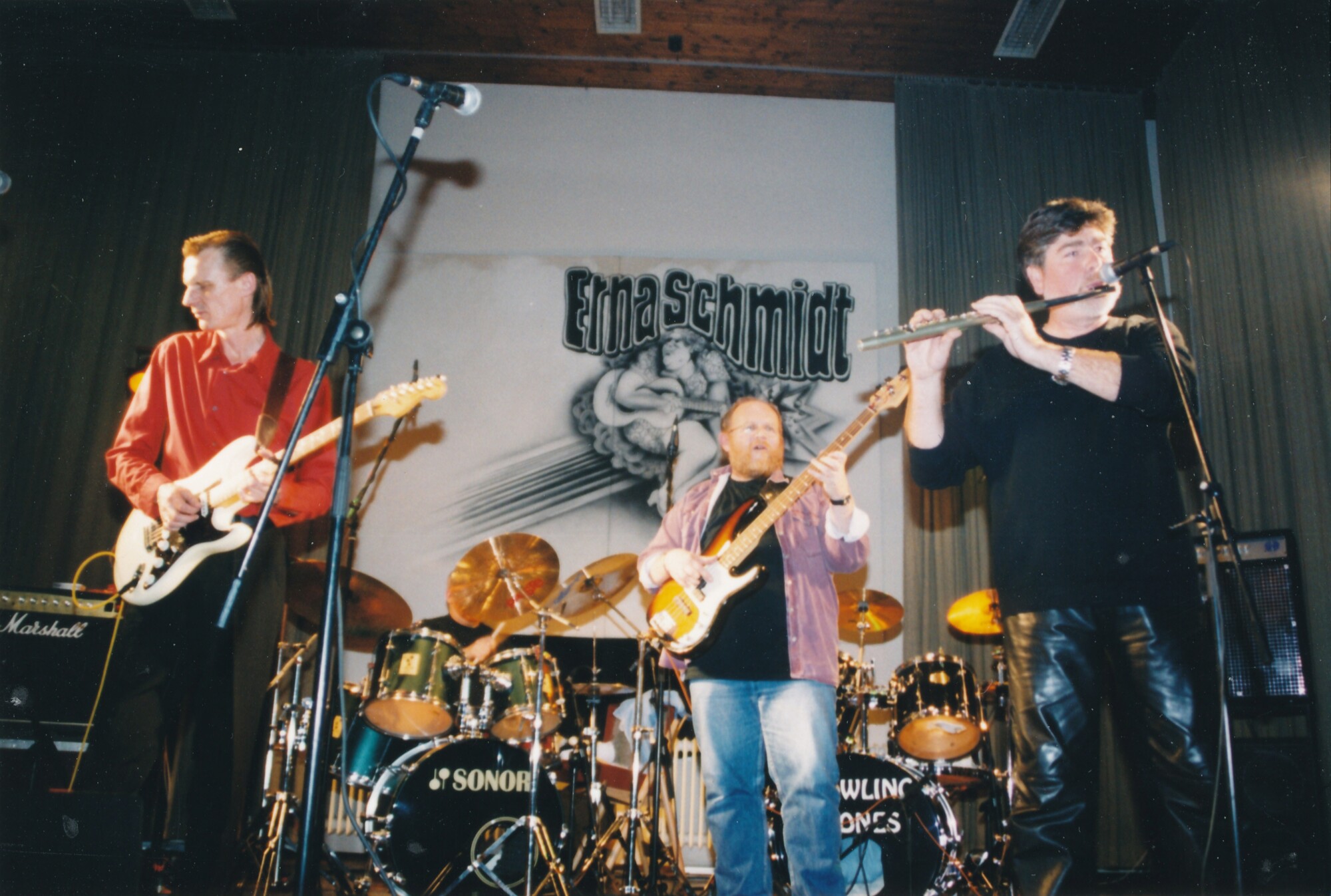
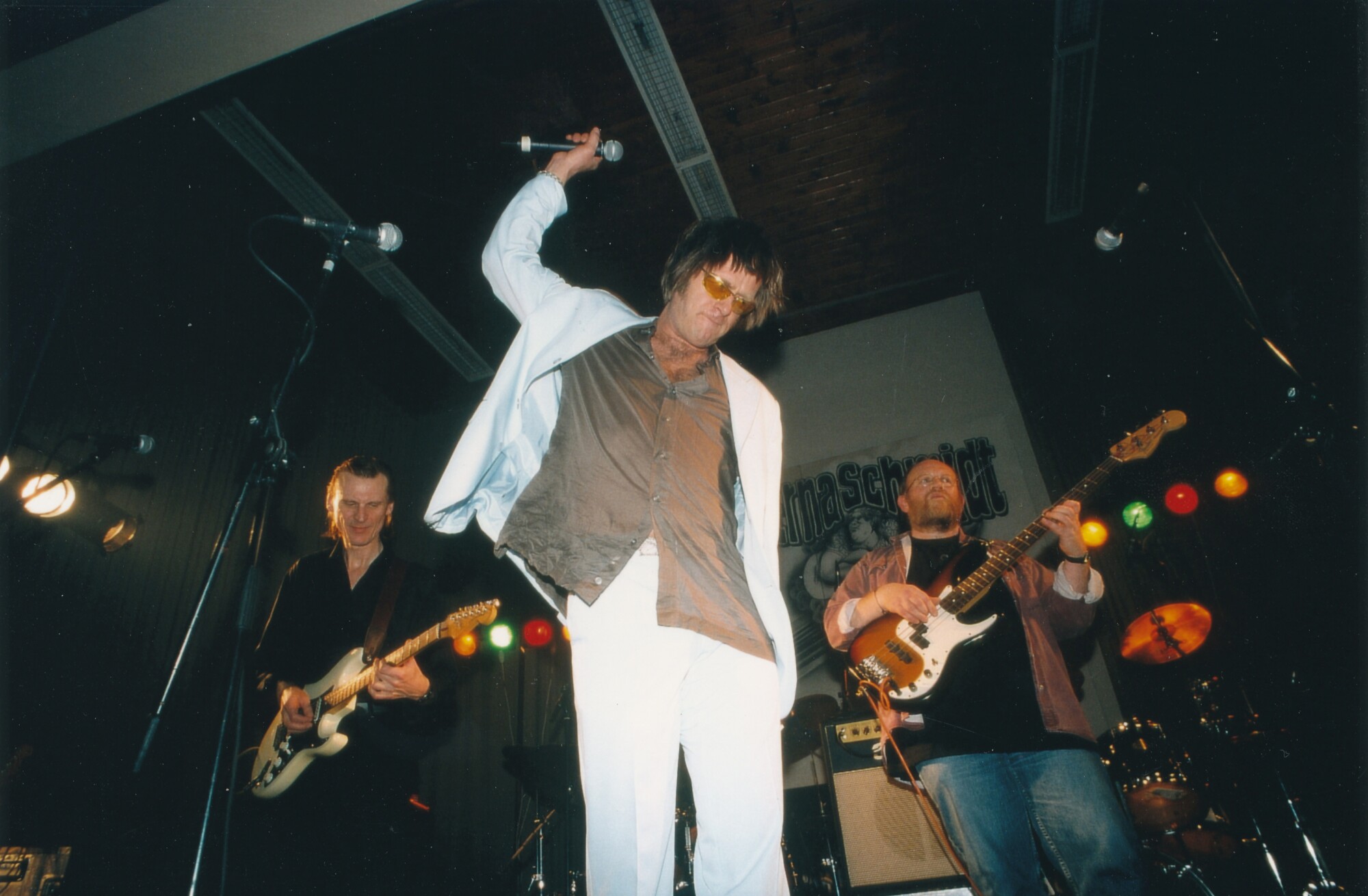
Looking back, what was the highlight of your time in the band?
Hubert Stytz: A festival in Offenbach was the most important thing for me. In total, maybe twenty bands. Promoters and record companies were there and listened. The contract with the OHR label only came with the thing in Offenbach.
Walter Laible: For me, the gig at the “Quartier Latin” was the most memorable.
Wolfgang Mathias: “Quartier Latin” was great.
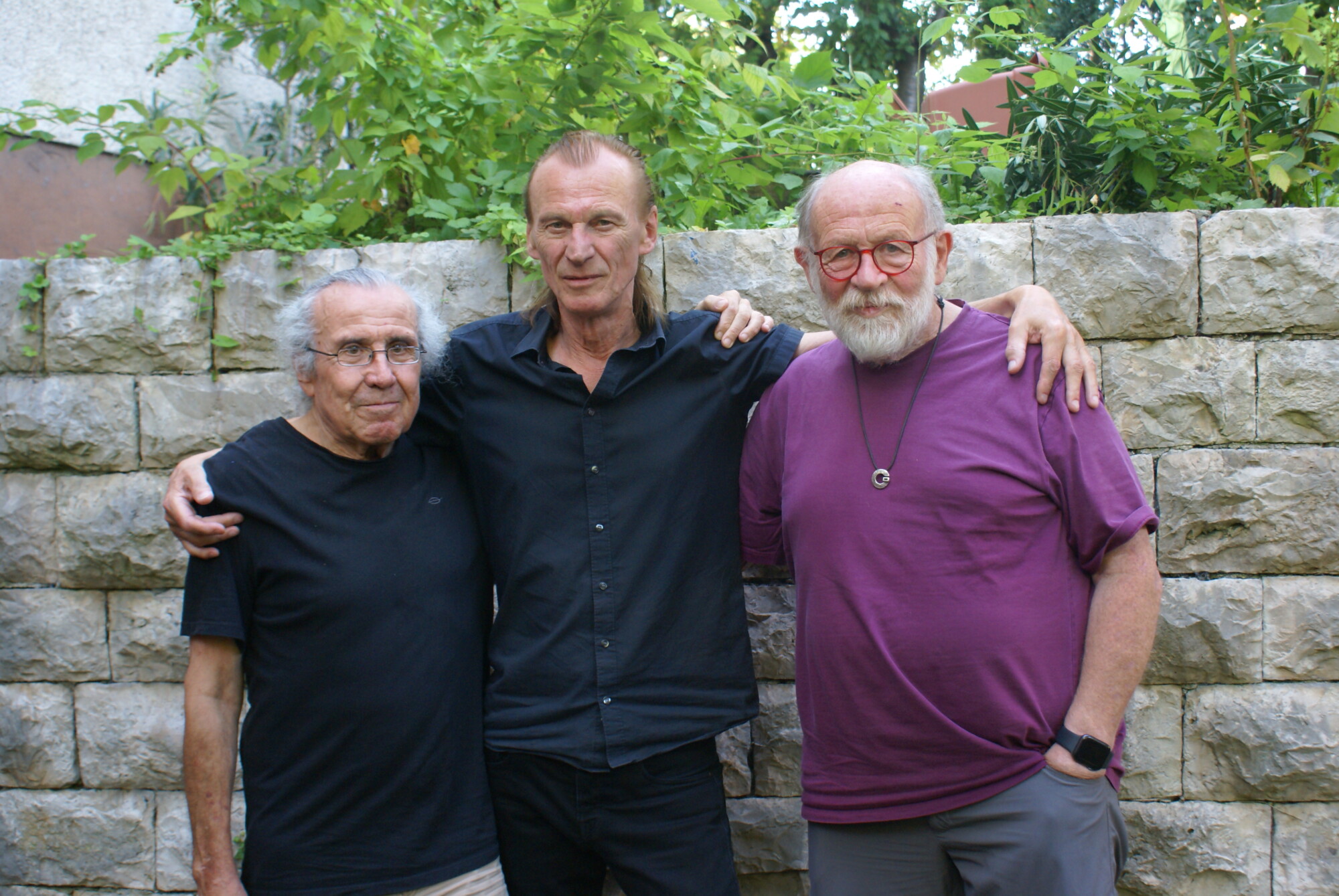
What currently occupies your life?
Hubert Stytz: I work full-time as a guitar teacher.
Walter Laible: I had to stop playing bass two years ago – a torn tendon in my hand while photographing Joe Cocker. I can play for ten minutes and then it hurts. I mainly work with film and photography. Professional commissioned work such as image films, local films, but also concerts and theatre plays.
Wolfgang Mathias: I’m still making music, still playing drums. Free, improvised music, every now and then a few standards with friends to stay in practice. I also played with Walter in one of his blues bands years ago.
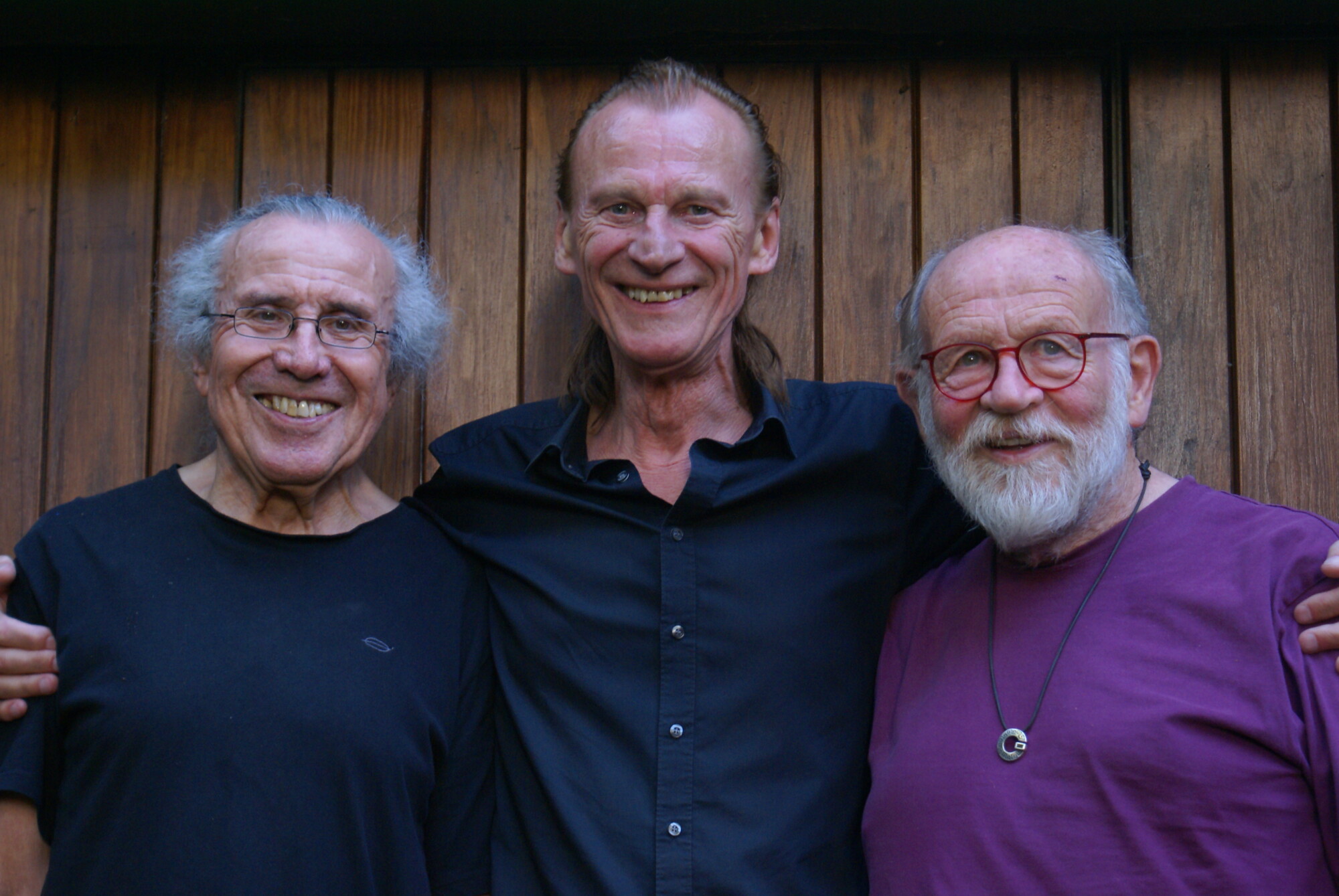
Thank you for taking your time. Last word is yours.
Walter Laible: I find it interesting how often people are exhumed. It never ends. That it has eaten its way into people’s brains… There must have been something there.
Hubert Stytz: I am very pleased that you are interested in Erna Schmidt and our early days. We’re really glad.
Wolfgang Mathias: I agree with Hubert, thank you for your interest in us.
Klemen Breznikar
Headline photo: Erna Schmidt (1974) | Bernd Weber, Wolfgang Mathias, Thomas Stabenow, Hubert Stytz
Interview conducted September 5, 2023
Translation: Volker Regner / Final correction: Phil Shoenfelt
Hubert Stytz Official Website

